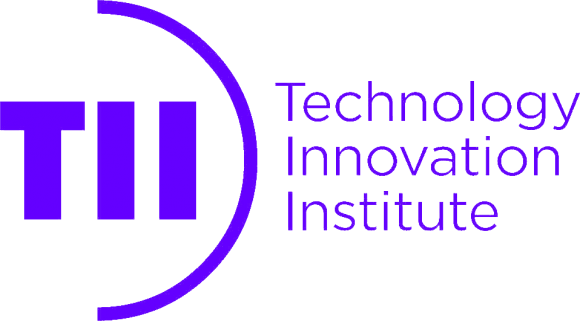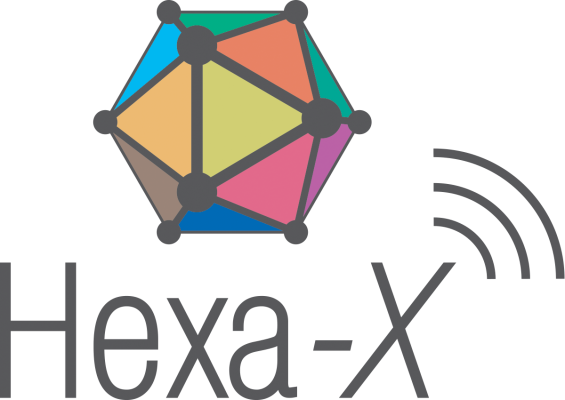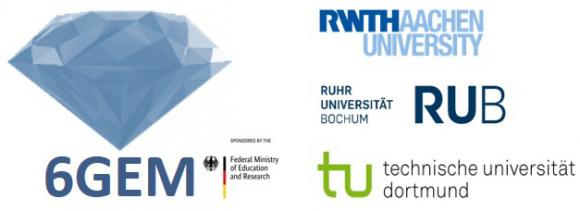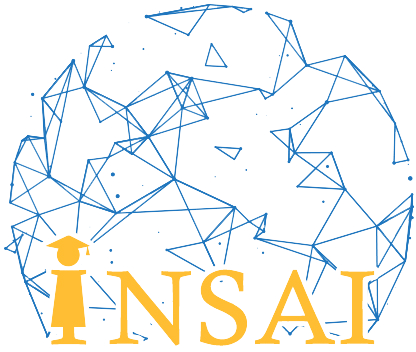Tutorials at a Glance
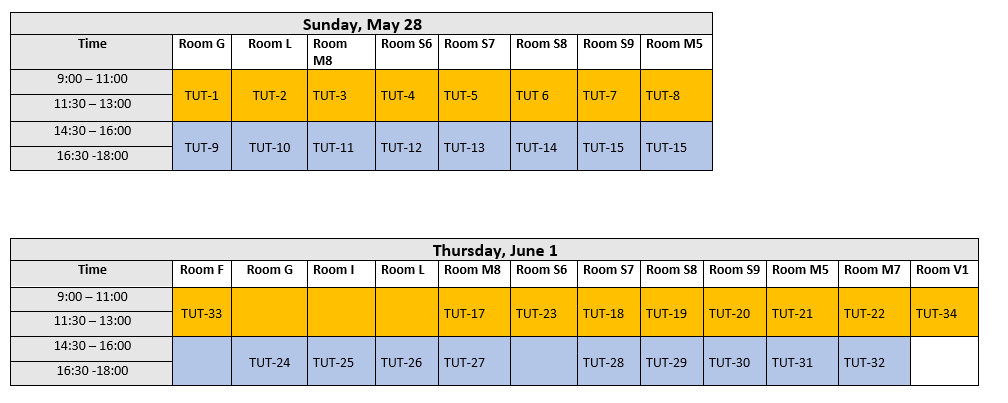
Sunday Half-Day, 28 May 2023, 9:00-13:00
TUT-1: Evolution of NOMA Toward Next Generation Multiple Access
TUT-2: On the Way to Wi-Fi 8: From Extremely High Throughput to Ultra High Reliability
TUT-3: Federated Learning: A Communications and Signal Processing Perspective
TUT-4: Rate Splitting Multiple Access for 6G: Fundamentals, Applications, and Open Issues
TUT-5: Task-oriented and Semantic-aware Communications and Networking for 6G
TUT-6: Robust Information Processing and Optimization for Resilient 6G Networks
TUT-7: Spectrum Sharing and Coexistence towards Integrated Sensing and Communications
TUT-8: Introduction to Quantum Communications
Sunday Half-Day, 28 May 2023, 14:30-18:00
TUT-9: Fundamental Theory and Recent Progress of Cell-Free Massive MIMO
TUT-10: Interplay between Sensing and Communications: Fundamental Limits, Signal Processing, and Prototyping
TUT-11: 5G Non-Terrestrial Networks (NTN): Recent Advancements, Open Challenges, and the Way Towards 6G-NTN
TUT-12: Leveraging Smart Wireless Environments for Beyond 5G Localization and Sensing
TUT-13: Localization-of-Things: From Foundation to B5G Ecosystem
TUT-14: Wireless Edge intelligence: From Edge Learning to Goal-oriented Communications
TUT-15: Meta Learning for Future Wireless Networks: Basics and Applications
TUT-16: Holographic Radio: A New Paradigm for Future Ultra-Massive MIMO
Thursday Half-Day, 1 June 2023, 9:00-13:00
TUT-17: Physical Layer Security for communication and sensing: Latest Trends, Threats, and Countermeasures
TUT-18: Towards Edge Intelligence for the Metaverse: A Tutorial
TUT-19: Truth inference in Crowdsensing
TUT-20: Enabling Global Intelligence with Low Earth Orbit Satellite Constellations
TUT-21: 6G and Quantum Communication Networks
TUT-22: Near-Field Communications for 6G: Fundamentals, Challenges, Potentials, and Future Directions
TUT-23: Statistical Learning with Generative Models for Communications
TUT-33: Integrated Space-Aerial-Terrestrial Wireless Networks for Global Connectivity
TUT-34: 6G Wireless Channel Measurements, Characteristics Analysis, and Modeling Methodologies
Thursday Half-Day, 1 June 2023, 14:30-18:00
TUT-24: Multicarrier-Division Duplex: A Duplexing Technique for Shift from 5G to 6G
TUT-25: EMF Exposure-aware Analysis and Optimization of Wireless Networks: A Multidisciplinary Approach
TUT-26: Toward a New Vision of Space Communications: Design Philosophy and Technologies
TUT-27: Machine Learning Over-the-Air: Two Tales of Interference - CANCELED
TUT-28: Channel Coding and Decoding for Beyond 5G Communications
TUT-29: Delay-Doppler Domain Communications and Sensing
TUT-30: Semantic Wireless Communications: Joint Communication and Computation Perspective
TUT-31: Digital Twins for 6G Communications and Networking
TUT-32: Federated Analytics: A Bridge Between Data Science and Machine Learning
TUT-1: Evolution of NOMA Toward Next Generation Multiple Access
Sunday, 28 May 2023, 9:00-13:00
Room: G
Abstract:
User data traffic has dramatically increased in recent years with the emergence of smart devices and various new applications. It is hence crucial to increase network capacity and user access to accommodate these bandwidth consuming applications and enhance the massive connectivity. As a prominent member of the next generation multiple access (NGMA) family, non-orthogonal multiple access (NOMA) has been recognized as a promising multiple access candidate for the sixth-generation (6G) networks. The main content of this tutorial is to discuss the so-called "One Basic Principle plus Four New" concept. Starting with the basic NOMA principle to explore the possible multiple access techniques in a non-orthogonal manner, the advantages and drawbacks of both the channel state information based successive interference cancellation (SIC) and quality-of-service based SIC are discussed. Then, the application of NOMA to meet the new 6G performance requirements, especially for massive connectivity, is explored. Furthermore, the integration of NOMA with new physical layer techniques is considered, followed by introducing new application scenarios for NOMA towards 6G. Finally, the application of machine learning in NOMA networks is investigated, ushering in the machine learning empowered NGMA era, for making multiple access in an intelligent manner for the next generation networks.
Speakers:
Zhiguo Ding; Yuanwei Liu
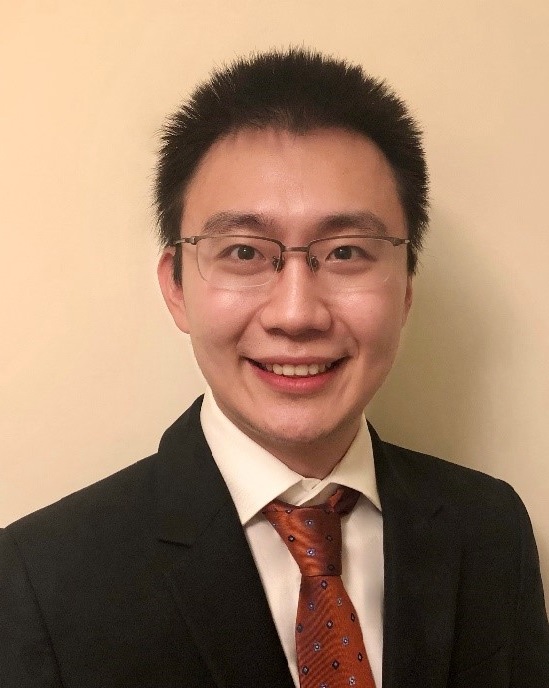 Yuanwei Liu
Yuanwei Liu
Yuanwei Liu received the PhD degree in electrical engineering from the Queen Mary University of London, U.K., in 2016. He was with the Department of Informatics, King's College London, from 2016 to 2017, where he was a Post-Doctoral Research Fellow. He has been a Senior Lecturer (Associate Professor) with the School of Electronic Engineering and Computer Science, Queen Mary University of London, since Aug. 2021, where he was a Lecturer (Assistant Professor) from 2017 to 2021. His research interests include non-orthogonal multiple access, reconfigurable intelligent surface, integrated sensing and communications, and machine learning. He has been a Web of Science Highly Cited Researcher since 2021, an IEEE Communication Society Distinguished Lecturer, an IEEE Vehicular Technology Society Distinguished Lecturer, and the academic Chair for the Next Generation Multiple Access Emerging Technology Initiative. He received IEEE ComSoc Outstanding Young Researcher Award for EMEA in 2020. He received the 2020 IEEE Signal Processing and Computing for Communications (SPCC) Technical Early Achievement Award, IEEE Communication Theory Technical Committee (CTTC) 2021 Early Achievement Award. He received IEEE ComSoc Outstanding Nominee for Best Young Professionals Award in 2021. He is the co-recipient of the Best Student Paper Award in IEEE VTC2022-Fall, the Best Paper Award in ISWCS 2022, and the 2022 IEEE SPCC-TC Best Paper Award. He serves as a Senior Editor of IEEE Communications Letters, an Editor of the IEEE Transactions on Wireless Communications and the IEEE Transactions on Communications. He serves as the Guest Editor for IEEE JSAC on Next Generation Multiple Access, IEEE JSTSP on Signal Processing Advances for Non-Orthogonal Multiple Access, IEEE Network on Next Generation Multiple Access for 6G. He serves as the Publicity Co-Chair for IEEE VTC 2019-Fall, Symposium Co-Chair for Cognitive Radio & AI-Enabled Networks for IEEE GLOBECOM 2022 and Communication Theory for IEEE GLOBECOM 2023. He serves as the chair of Special Interest Group (SIG) in SPCC Technical Committee on signal processing Techniques for next generation multiple access, the vice-chair of SIG WTC on Reconfigurable Intelligent Surfaces for Smart Radio Environments.
TUT-2: On the Way to Wi-Fi 8: From Extremely High Throughput to Ultra High Reliability
Sunday, 28 May 2023, 9:00-13:00
Room: L
Abstract:
What will Wi-Fi be in 2030? As hordes of data-hungry devices challenge its current capabilities, the IEEE strikes again with 802.11be—alias Wi-Fi 7—while also paving the way for its successor: Wi-Fi 8. These brand-new amendments promise a (r)evolution of unlicensed wireless connectivity as we know it, unlocking access to gigabit, reliable and low-latency communications, and reinventing manufacturing and social interaction through digital augmentation. With the development of Wi-Fi 7 underway and the standardization of Wi-Fi 8 about to kick off, we will shed light from both an industrial and an academical perspective on the must-have features to make unlicensed wireless the new wired.
Speakers:
Lorenzo Galati Giordano; Giovanni Geraci; Boris Bellalta
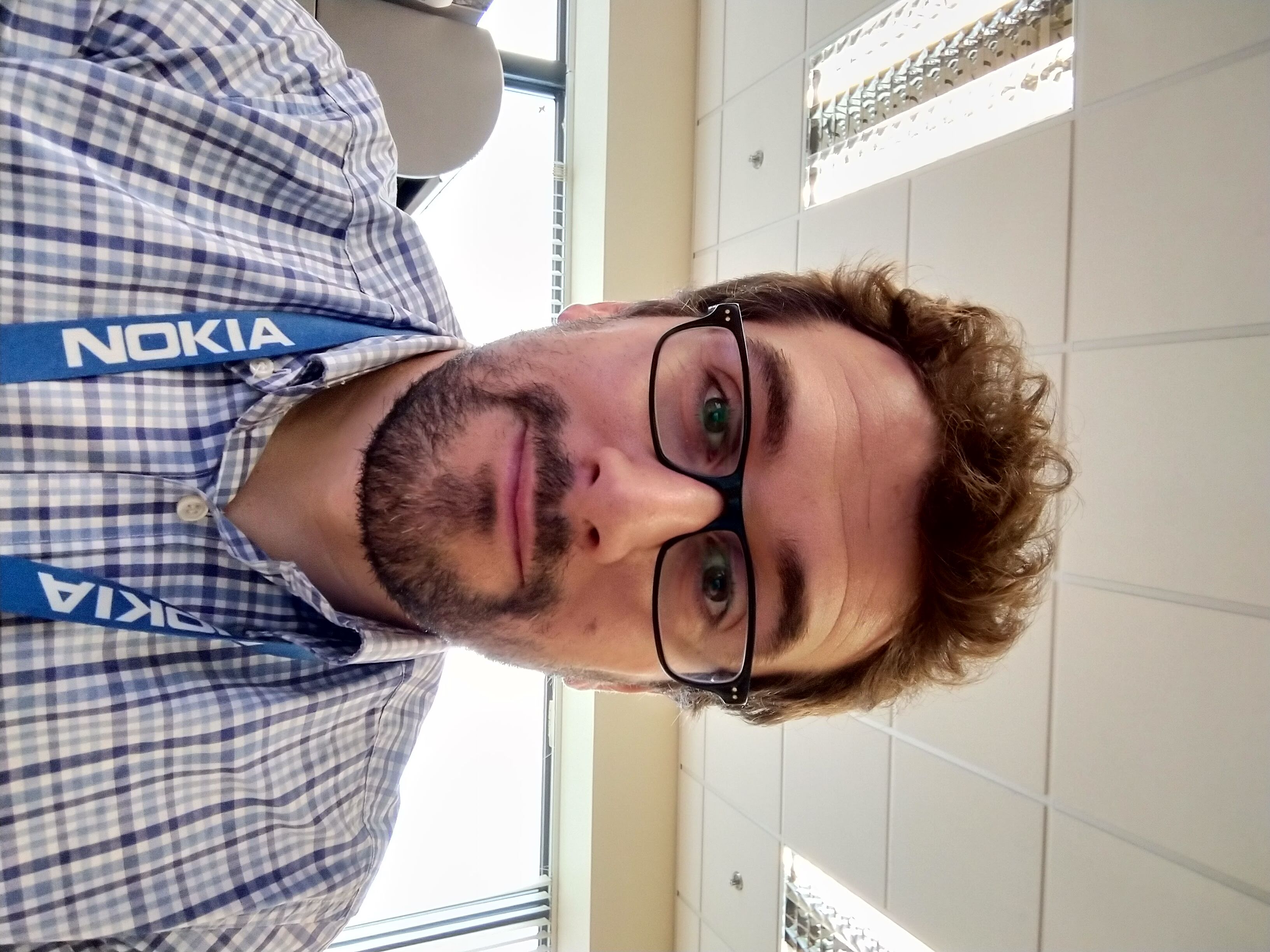 Lorenzo Galati Giordano
Lorenzo Galati Giordano
Lorenzo Galati Giordano (SM’20) is Senior Research Engineer at Nokia Bell Labs Germany since 2015, producing leading research contributions in the area of radio systems operating in the unlicensed spectrum. Lorenzo has more than 15 years of academical and industrial experience on communication systems, protocols, and standards, resulting in the co-authoring of tens of commercial patents, publications in prestigious books, IEEE journals and conferences, and standard contributions. He was previously R&D System Engineer for Azcom Technology, an Italian SME, from 2010 to 2014, holds a PhD from Politecnico di Milano university in Italy and a post-graduate master's degree in Innovation Management from IlSole24Ore Business School, Italy. Lorenzo’s current focus is on next generation Wi-Fi technologies and reliable low-latency techniques for the unlicensed spectrum.
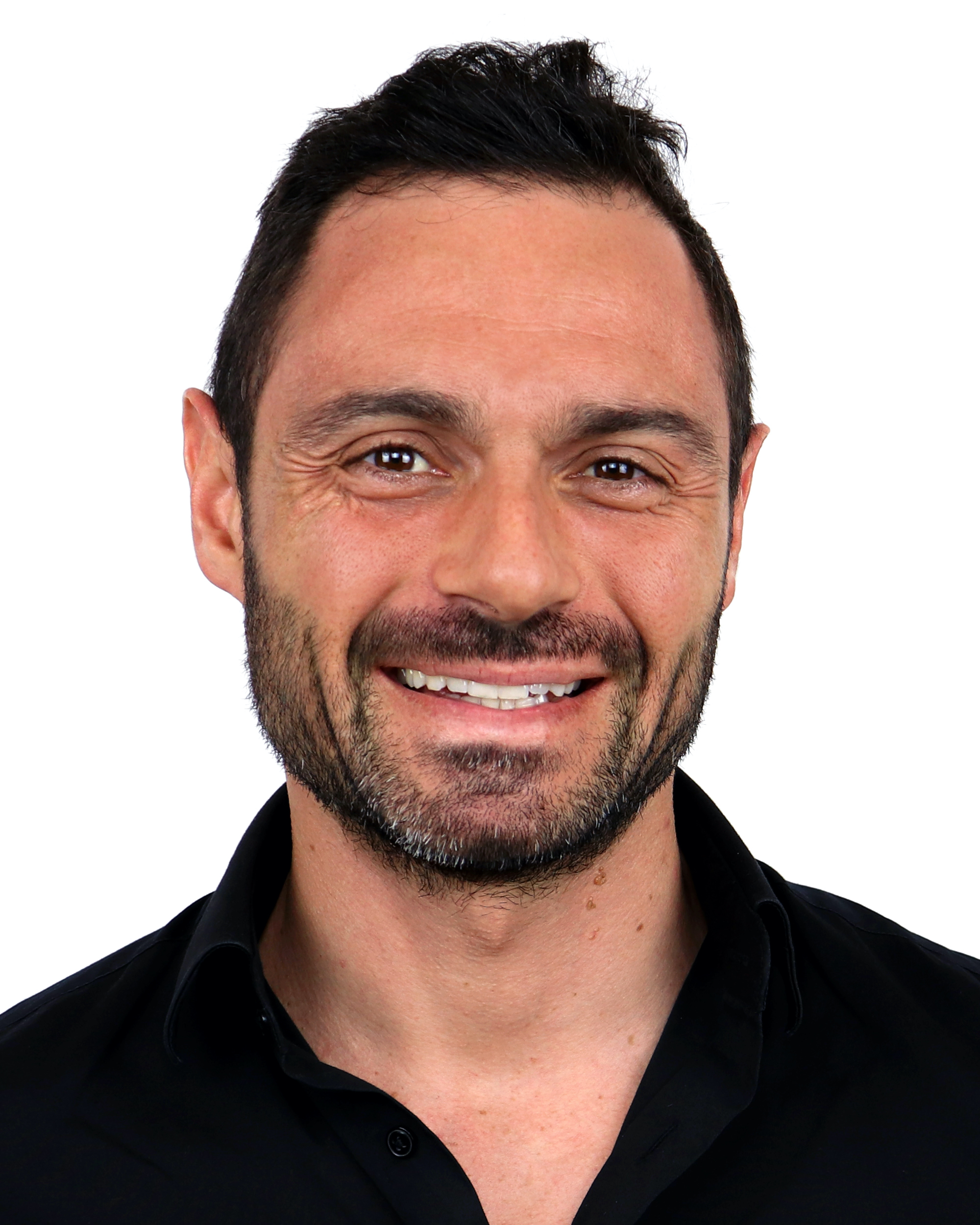 Giovanni Geraci
Giovanni Geraci
Giovanni Geraci is an Assistant Professor and the Head of Telecommunications Engineering at Universitat Pompeu Fabra in Barcelona. He was previously with Nokia Bell Labs and holds a dozen patents on wireless cellular and unlicensed technologies. He has been serving as Distinguished Lecturer for the IEEE Communications Society and the IEEE Vehicular Technology Society. He received the IEEE ComSoc EMEA Outstanding Young Researcher Award and Best Paper Awards at IEEE PIMRC’19 and IEEE Globecom’22.
TUT-3: Federated Learning: A Communications and Signal Processing Perspective
Sunday, 28 May 2023, 9:00-13:00
Room: M8
Abstract:
The proposed tutorial is largely based on our recent magazine article entitled "Federated Learning: A Signal Processing Perspective", which was published in the IEEE Signal Processing magazine. The importance of the tutorial stems from its extensive overview of aspects and tools with which communications can contribute to the emerging paradigm of federated learning. Specifically, federated learning is expected to play a key role in the realization of the broader goal of transitioning machine learning to the edge, which is of paramount importance to future developments in artificial intelligence. The fact that many of the challenges associated with federated learning are highly related to signal processing problems indicates the importance of having communications and signal processing researchers and practitioners contribute to future developments in federated learning, which we hope to facilitate and encourage in our tutorial. The proposed tutorial is self-contained. Nonetheless, we believe that the tutorial would be most beneficial and inspiring for attendees with a background in the areas of signal processing, communications, or information theory, and a desire to explore research directions in this emerging machine learning paradigm. We believe that the proposed perspective can be of great interest to many researchers in the communications society.
Speakers:
Nir Shlezinger; Yonina C. Eldar; Deniz Gündüz; Kobi Cohen
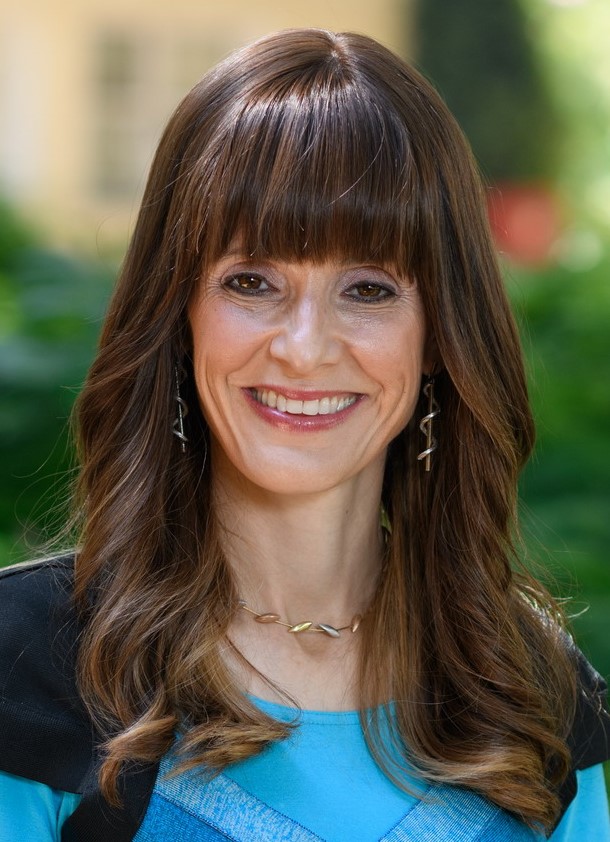 Yonina C. Eldar
Yonina C. Eldar
Yonina Eldar is a Professor in the Department of Mathematics and Computer Science, Weizmann Institute of Science, Rehovot, Israel where she heads the center for Biomedical Engineering and Signal Processing and holds the Dorothy and Patrick Gorman Professorial Chair. She is also a Visiting Professor at MIT, a Visiting Scientist at the Broad Institute, and an Adjunct Professor at Duke University and was a Visiting Professor at Stanford. She is a member of the Israel Academy of Sciences and Humanities, an IEEE Fellow and a EURASIP Fellow. She received the B.Sc. degree in physics and the B.Sc. degree in electrical engineering from Tel-Aviv University, and the Ph.D. degree in electrical engineering and computer science from MIT, in 2002. She has received many awards for excellence in research and teaching, including the IEEE Signal Processing Society Technical Achievement Award (2013), the IEEE/AESS Fred Nathanson Memorial Radar Award (2014) and the IEEE Kiyo Tomiyasu Award (2016). She was a Horev Fellow of the Leaders in Science and Technology program at the Technion and an Alon Fellow. She received the Michael Bruno Memorial Award from the Rothschild Foundation, the Weizmann Prize for Exact Sciences, the Wolf Foundation Krill Prize for Excellence in Scientific Research, the Henry Taub Prize for Excellence in Research (twice), the Hershel Rich Innovation Award (three times), and the Award for Women with Distinguished Contributions. She received several best paper awards and best demo awards together with her research students and colleagues, was selected as one of the 50 most influential women in Israel, and was a member of the Israel Committee for Higher Education. She is the Editor in Chief of Foundations and Trends in Signal Processing, a member of several IEEE Technical Committees and Award Committees, and heads the Committee for Promoting Gender Fairness in Higher Education Institutions in Israel.
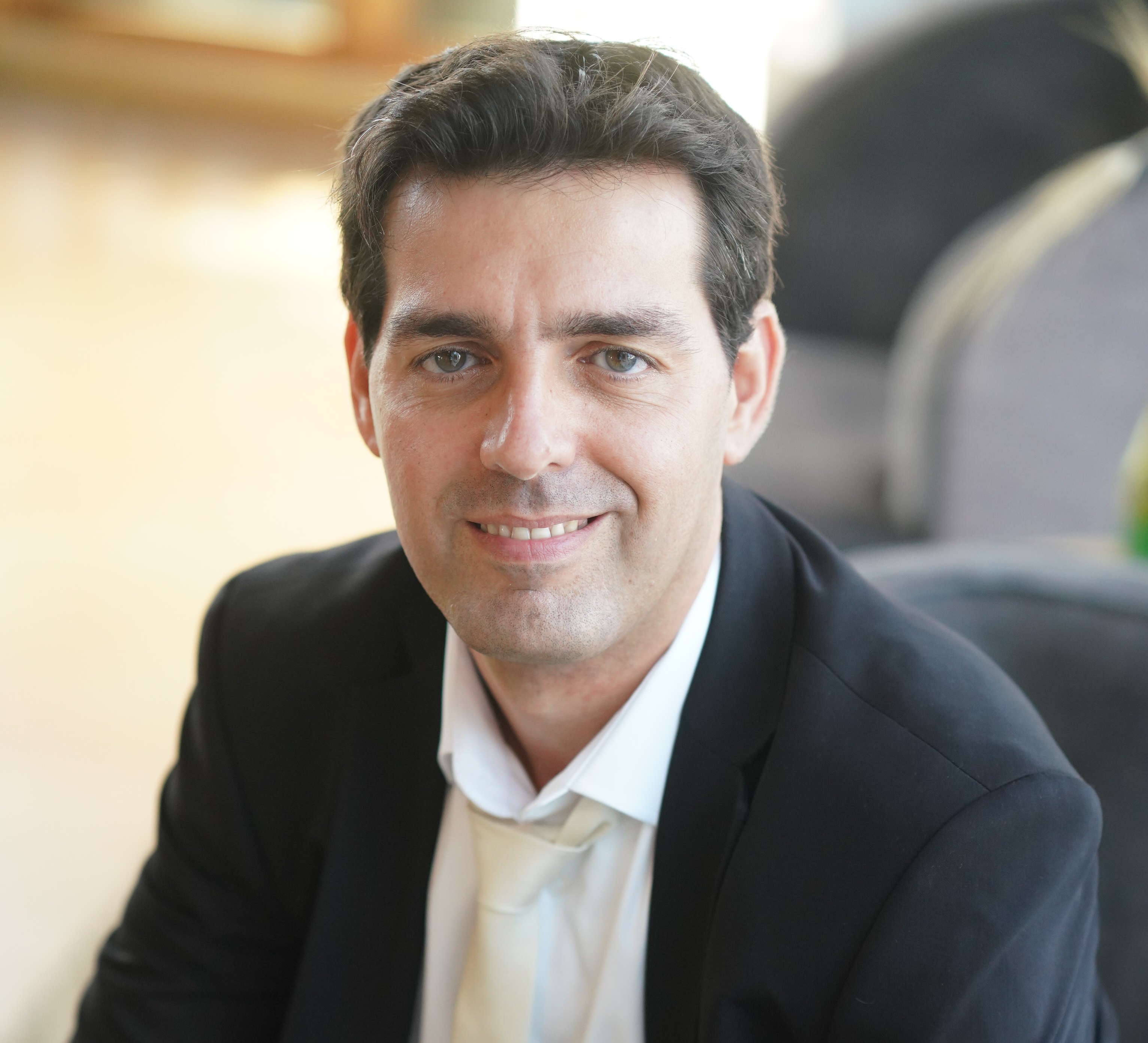 Kobi Cohen
Kobi Cohen
Kobi Cohen received his B.Sc. and Ph.D. degrees in electrical engineering from Bar-Ilan University, Ramat Gan, Israel, in 2007 and 2013, respectively. He was with the Coordinated Science Laboratory at the University of Illinois at Urbana-Champaign (08/2014–07/2015) and the Department of Electrical and Computer Engineering at the University of California, Davis (11/2012–07/2014) as a postdoctoral research associate. In October 2015, he joined the School of Electrical and Computer Engineering at Ben-Gurion University of the Negev (BGU), Beer Sheva, Israel, where he is currently an Associate Professor. He is also a member of the Cyber Security Research Center, and the Data Science Research Center at BGU. His main research interests include statistical inference and learning, signal processing, communication networks, decision theory and stochastic optimization with applications to large-scale systems, cyber systems, wireless and wireline networks. Prof. Cohen is a Senior Member of IEEE. Since 2021, he serves as an Associate Editor of the IEEE Transactions on Signal Processing, and the IEEE Transactions on Wireless Communications. Other selected Awards and Honors include highlighting in top 50 popular paper list, IEEE Transactions on Wireless Communications (2019, 2020) for paper: "Deep multi-user reinforcement learning for distributed dynamic spectrum access", highlighting in popular paper list, IEEE Signal Processing Magazine (2022) for paper: "Federated Learning: A signal processing perspective", receiving the Best Paper Award in the International Symposium on Modeling and Optimization in Mobile, Ad hoc and Wireless Networks (WiOpt) 2015, the Feder Family Award (second prize), awarded by the Advanced Communication Center at Tel Aviv University (2011), and President Fellowship (2008-2012) and top Honor List's prizes (2006, 2010, 2011) from Bar-Ilan University.
TUT-4: Rate Splitting Multiple Access for 6G: Fundamentals, Applications, and Open Issues
Sunday, 28 May 2023, 9:00-13:00
Room: S6
Abstract:
This tutorial is dedicated to the theory, design, optimization and applications of RSMA in many different scenarios relevant to wireless communication and signal processing for 6G. The tutorial will give the audience a comprehensive introduction of the state-of-the-art development in rate splitting theory and applications in a wide range of scenarios including MU-MIMO, TDD/ FDD/cell-free massive MIMO, cooperative transmission with user relaying, reconfigurable intelligent surface (RIS), cloud-radio access network (C-RAN), mixed services: non-orthogonal unicast and multicast transmissions, multibeam satellite communications, low latency and finite block length, integrated sensing and communications (ISAC), etc.
Speakers:
Bruno Clerckx; Yijie Mao
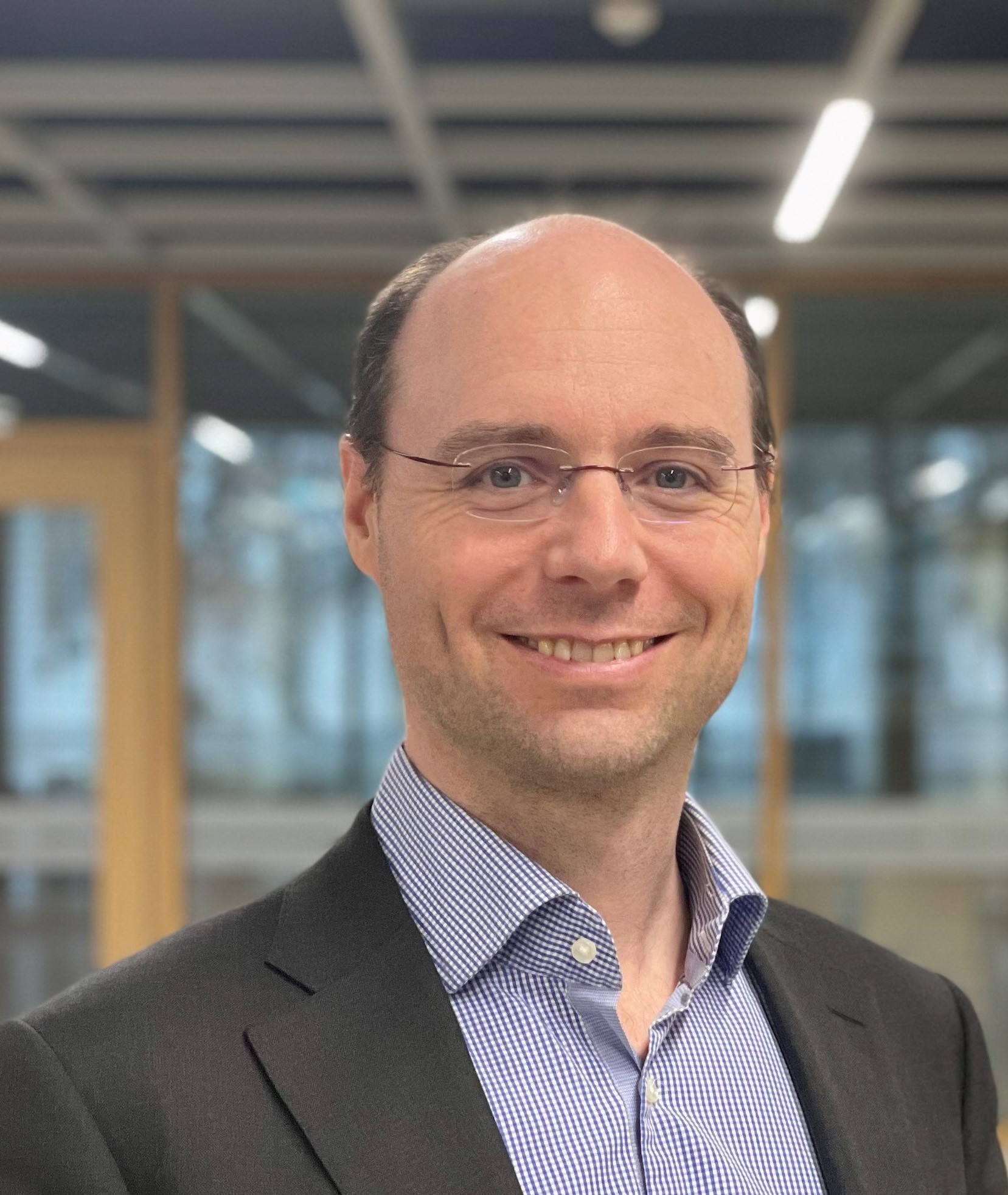 Bruno Clerckx is a (Full) Professor, the Head of the Wireless Communications and Signal Processing Lab, and the Deputy Head of the Communications and Signal Processing Group, within the Electrical and Electronic Engineering Department, Imperial College London, London, U.K. He is also the Chief Technology Officer (CTO) of Silicon Austria Labs (SAL) where he is responsible for all research areas of Austria's top research center for electronic based systems.
Bruno Clerckx is a (Full) Professor, the Head of the Wireless Communications and Signal Processing Lab, and the Deputy Head of the Communications and Signal Processing Group, within the Electrical and Electronic Engineering Department, Imperial College London, London, U.K. He is also the Chief Technology Officer (CTO) of Silicon Austria Labs (SAL) where he is responsible for all research areas of Austria's top research center for electronic based systems.
He received the MSc and Ph.D. degrees in Electrical Engineering from Université Catholique de Louvain, Belgium, in 2000 and 2005, respectively, and the Doctor of Science (DSc) degree from Imperial College London, U.K. in 2022. From 2006 to 2011, he was with Samsung Electronics, Suwon, South Korea, where he actively contributed to 4G (3GPP LTE/LTE-A and IEEE 802.16m) and acted as the Rapporteur for the 3GPP Coordinated Multi-Point (CoMP) Study Item. Since 2011, he has been with Imperial College London, first as a Lecturer from 2011 to 2015, Senior Lecturer from 2015 to 2017, Reader from 2017 to 2020, and now as a Full Professor. From 2014 to 2016, he also was an Associate Professor with Korea University, South Korea, and from 2021 to 2022, he was a visiting Professor at Seoul National University, South Korea. He also held various long or short-term visiting research appointments at Stanford University, EURECOM, National University of Singapore, The University of Hong Kong, Princeton University, The University of Edinburgh, The University of New South Wales, and Tsinghua University.
He has authored two books on “MIMO Wireless Communications” and “MIMO Wireless Networks”, 250 peer-reviewed international research papers, and 150 standards contributions, and is the inventor of 80 issued or pending patents among which 15 have been adopted in the specifications of 4G standards and are used by billions of devices worldwide. His research spans the general area of wireless communications and signal processing for wireless networks. He has been a TPC member, a symposium chair, or a TPC chair of many symposia on communication theory, signal processing for communication and wireless communication for several leading international IEEE conferences. He was an Elected Member of the IEEE Signal Processing Society “Signal Processing for Communications and Networking” (SPCOM) Technical Committee. He served as an Editor for the IEEE TRANSACTIONS ON COMMUNICATIONS, the IEEE TRANSACTIONS ON WIRELESS COMMUNICATIONS, and the IEEE TRANSACTIONS ON SIGNAL PROCESSING. He has also been a (lead) guest editor for special issues of the EURASIP Journal on Wireless Communications and Networking, IEEE ACCESS, the IEEE JOURNAL ON SELECTED AREAS IN COMMUNICATIONS, the IEEE JOURNAL OF SELECTED TOPICS IN SIGNAL PROCESSING, the PROCEEDINGS OF THE IEEE, and the IEEE Open Journal of the Communications Society. He was an Editor for the 3GPP LTE-Advanced Standard Technical Report on CoMP.
He received the prestigious Blondel Medal 2021 from France for exceptional work contributing to the progress of Science and Electrical and Electronic Industries, the 2021 Adolphe Wetrems Prize in mathematical and physical sciences from Royal Academy of Belgium, multiple awards from Samsung, IEEE best student paper award, and the EURASIP (European Association for Signal Processing) best paper award 2022. He is a Fellow of the IEEE and the IET, and an IEEE Communications Society Distinguished Lecturer 2021-2023.
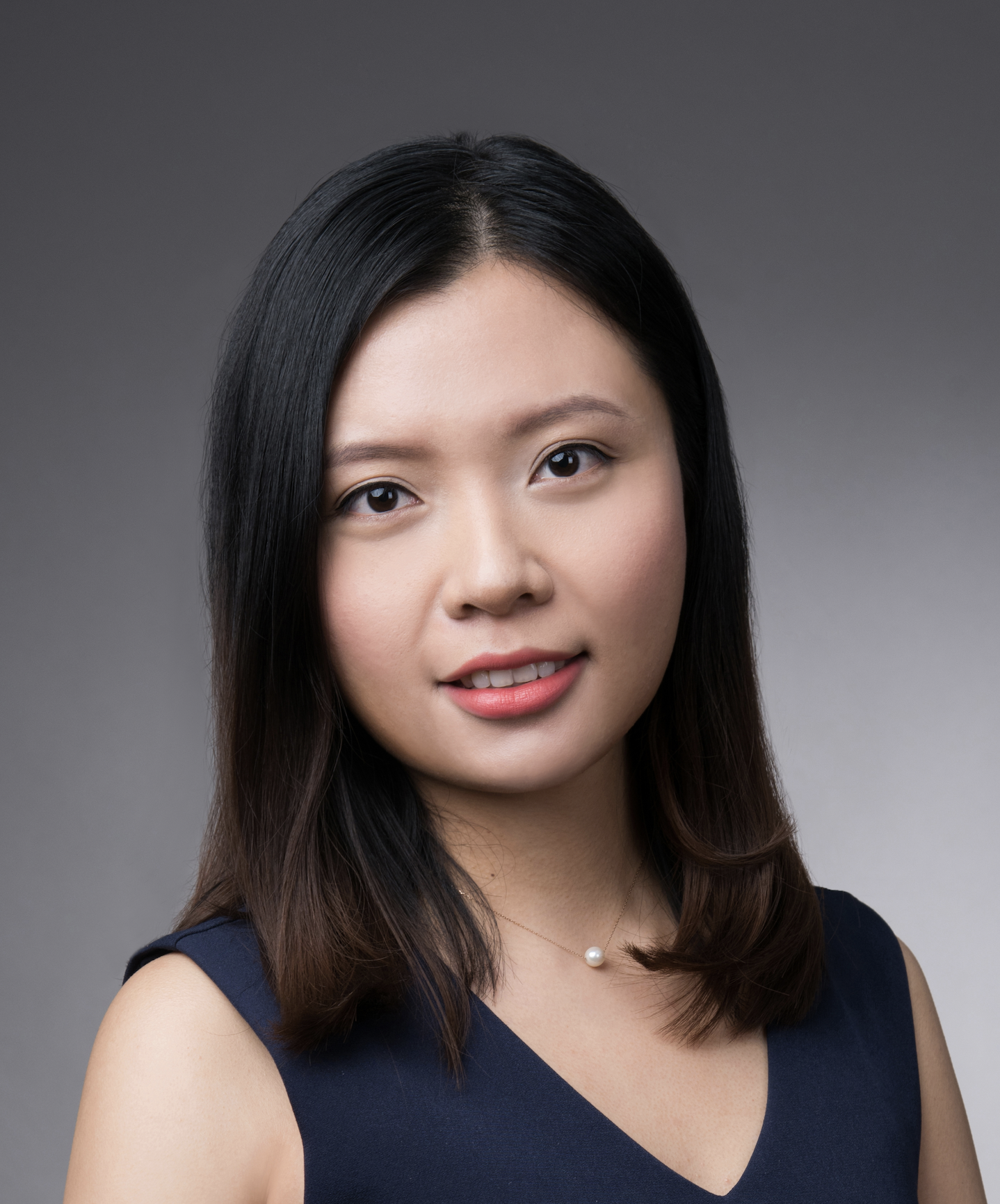 Yijie Mao
Yijie Mao
Yijie (Lina) Mao is an Assistant Professor at the School of Information Science and Technology, ShanghaiTech University, Shanghai, China. She received the B.Eng. degree from the Beijing University of Posts and Telecommunications, and the B.Eng. (Hons.) degree from the Queen Mary University of London (London, United Kingdom) in 2014. She received the Ph.D. degree in the Electrical and Electronic Engineering Department from the University of Hong Kong (Hong Kong, China) in 2018. She was a Postdoctoral Research Fellow at the University of Hong Kong (Hong Kong, China) from Oct. 2018 to Jul. 2019 and a postdoctoral research associate with the Communications and Signal Processing Group (CSP), Department of the Electrical and Electronic Engineering at the Imperial College London (London, United Kingdom) from Aug. 2019 to Jul. 2021. Her research interests include the design of future wireless communications and artificial intelligence-empowered wireless networks. She is a senior member of China Institute of Communications. Dr. Mao receives the Best Paper Award of EURASIP Journal on Wireless Communications and Networking 2022, the Exemplary Reviewer for IEEE Transactions on Communications 2021 and IEEE Communications Letters 2022. She is currently serving as an editor for IEEE Communications Letters, and a guest editor for two special issues of IEEE Journal on Selected Areas in Communications and IEEE Open Journal of the Communications Society. She has been a workshop co-chair for 2020-2022 IEEE ICC, 2021-2023 IEEE WCNC, and 2020-2022 IEEE PIMRC, and she has been a Technical Program Committee (TPC) member of many symposia on wireless communication for several leading international IEEE conferences.
TUT-5: Task-oriented and Semantic-aware Communications and Networking for 6G
Sunday, 28 May 2023, 9:00-13:00
Room: S7
Abstract:
This tutorial will identify and discuss technical challenges and recent results related to task-oriented and semantics-aware communications for future wireless networks. The tutorial is mainly divided into four parts. In the first part, we will provide the motivation and we will discuss the current approaches towards semantics-aware goal-oriented communications such as earlier studies that consider age and value of information. Then, we will consider the topic beyond age of information. We will present some results on autonomous maintenance in industrial IoT, semantic source coding, and autonomous systems and then present a novel task-oriented and semantics-aware communication framework in AI-based future wireless networks. In the second part, we will focus on task-oriented and semantics-aware communication solutions for the virtual reality data type. In the third part, we will present task-oriented and semantics-aware communications solutions for control and command data, and sensor data. In the fourth part, we will focus on the application scenario of edge video analytics, and summarize the tutorial by providing a future outlook of task-oriented and semantics-aware communication and networks.
Speakers:
Yansha Deng; Nikolaos Pappas; Jun Zhang
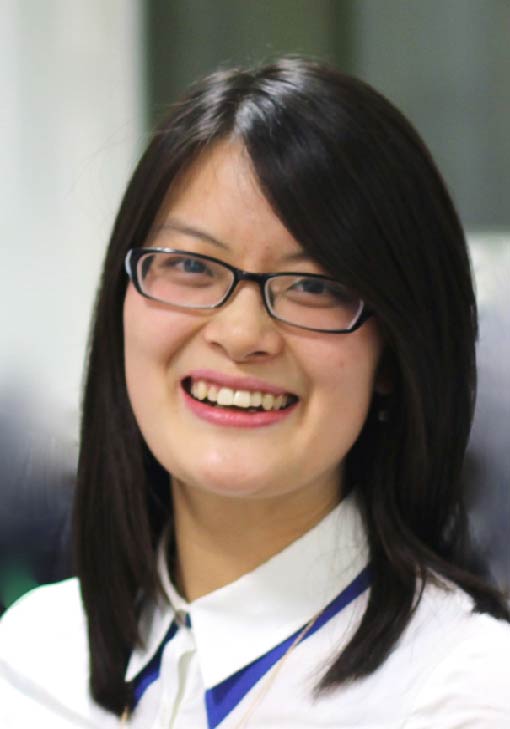 Yansha Deng
Yansha Deng
Yansha Deng (Senior Member, IEEE) received the Ph.D. degree in electrical engineering from the Queen Mary University of London, U.K., in 2015. From 2015 to 2017, she was a Post-Doctoral Research Fellow with King’s College London, U.K, where she is currently a Senior Lecturer (an Associate Professor) with the Department of Engineering. Her research interests include molecular communication and machine learning for 5G/6G wireless networks. She was a recipient of the Best Paper Awards from ICC 2016 and GLOBECOM 2017 as the first author and IEEE Communications Society Best Young Researcher Award for the Europe, Middle East, and Africa Region 2021. She also received the Exemplary Reviewers of the IEEE TRANSACTIONS ON COMMUNICATIONS in 2016 and 2017 and IEEE TRANSACTIONS ON WIRELESS COMMUNICATIONS in 2018. She has served as a TPC Member for many IEEE conferences, such as IEEE GLOBECOM and ICC. She is currently an Associate Editor of the IEEE TRANSACTIONS ON COMMUNICATIONS and IEEE TRANSACTIONS ON MOLECULAR, BIOLOGICAL AND MULTI-SCALE COMMUNICATIONS, a Senior Editor of the IEEE COMMUNICATIONS LETTERS, and the Vertical Area Editor of IEEE Internet of Things Magazine.
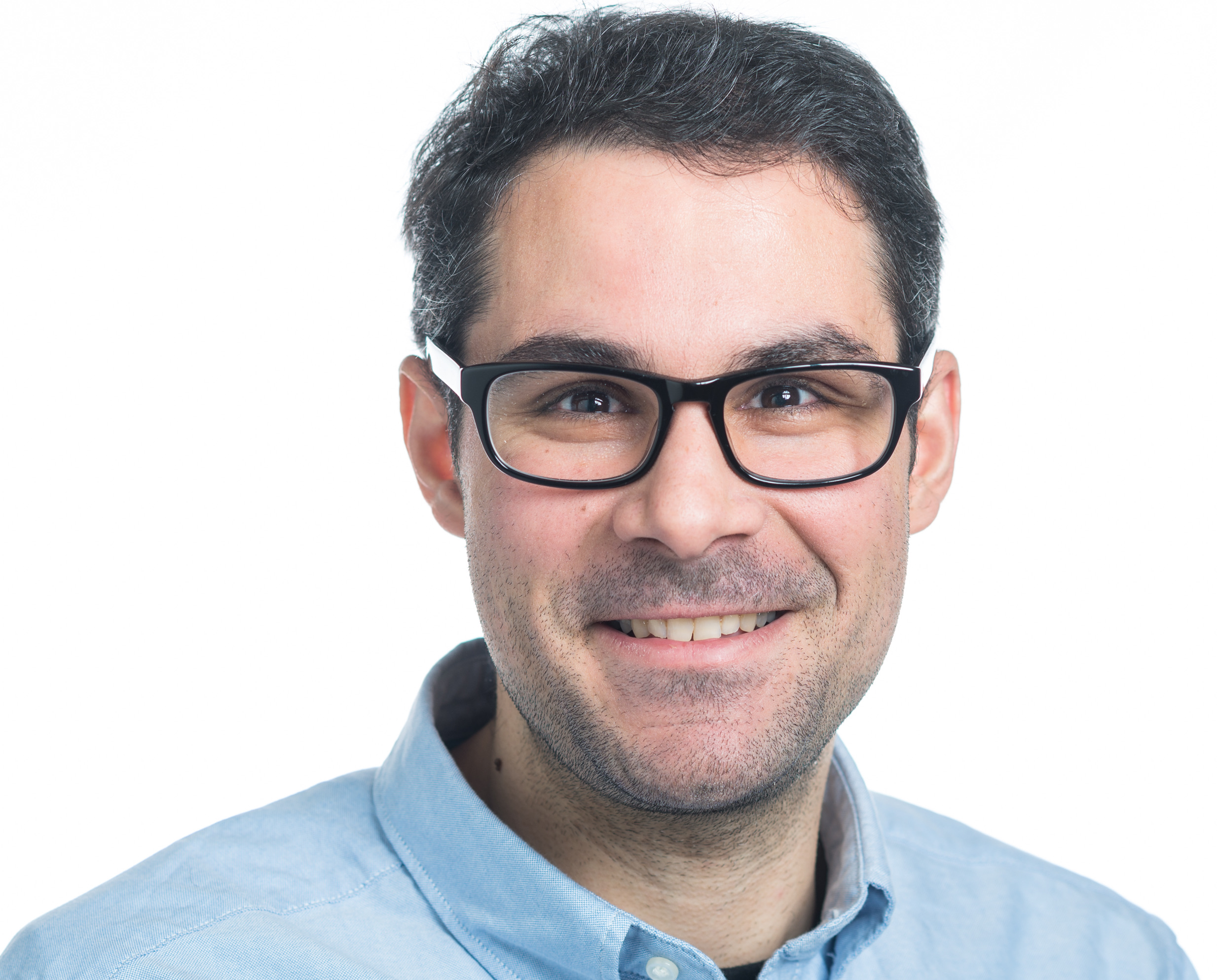 Nickolaos Pappas
Nickolaos Pappas
Nikolaos Pappas (Senior Member, IEEE) received the B.Sc. degree in computer science, the B.Sc. degree in mathematics, the M.Sc. degree in computer science, and the Ph.D. degree in computer science from the University of Crete, Greece, in 2005, 2012, 2007, and 2012, respectively. From 2005 to 2012, he was a Graduate Research Assistant with the Telecommunications and Networks Laboratory, Institute of Computer Science, FORTH, Heraklion, Greece, and a Visiting Scholar with the Institute of Systems Research, University of Maryland at College Park, College Park, MD, USA. From 2012 to 2014, he was a postdoctoral Researcher with the Department of Telecommunications, CentraleSupélec, Gif-sur-Yvette, France. He is currently an Associate Professor with the Department of Computer and Information Science, Linköping University, Linköping, Sweden. His main research interests include the field of wireless communication networks with an emphasis on semantics-aware communications, energy harvesting networks, network-level cooperation, age of information, and stochastic geometry. Dr. Pappas has served as the Symposium Co-Chair of the IEEE International Conference on Communications in 2022 and the IEEE Wireless Communications and Networking Conference in 2022. He is an Editor of the IEEE TRANSACTIONS ON COMMUNICATIONS, the IEEE Transactions on Machine Learning in Communications and Networking, the IEEE/KICS JOURNAL OF COMMUNICATIONS AND NETWORKS, area editor of the IEEE OPEN JOURNAL OF THE COMMUNICATIONS SOCIETY and an Expert Editor for invited papers of the IEEE COMMUNICATIONS LETTERS. He is a guest editor of the IEEE Internet of Things Magazine and the IEEE Network. He was a Guest Editor of the IEEE INTERNET OF THINGS JOURNAL on “Age of Information and Data Semantics for Sensing, Communication and Control Co-Design in IoT.”
TUT-6: Robust Information Processing and Optimization for Resilient 6G Networks
Sunday, 28 May 2023, 9:00-13:00
Room: S8
Abstract:
In the future 6G, especially the AIoT, there will be much less coordination between network nodes compared with 5G. Due to the heterogeneity among nodes, some nodes may not feedback their local CSI perfectly, and severe interference will be inevitable if the network is not robust and resilient. In the first part of the tutorial, we provide a comprehensive system model for modern NOMA robust to imperfect CSI, and formulate the corresponding multi-objective optimization problems. Solvers based on optimization theory and machine learning are presented to design algorithms toward energy-efficient and robust systems. Next, federated learning is expected to be combined with 6G wireless network for AIoT, which protects the data privacy of local users. However, non-ideal communication links will seriously impact the accuracy of federated learning. We will present the recent advances in algorithm design and resource allocation for enhancing the robustness of federated learning. Finally, the distributed nature of AIoT will also increase the chance of potential adversaries, and one must design self-resilient mechanisms which still maintain the learning and detection performance. Adversarially-robust information transmission and detection will be discussed. Provable securities will be ensured by information and game theoretic tools.
Speakers: Eduard A Jorswieck; Shih-Chun Lin; Pin-Hsun Lin; Tsung-Hui Chang,
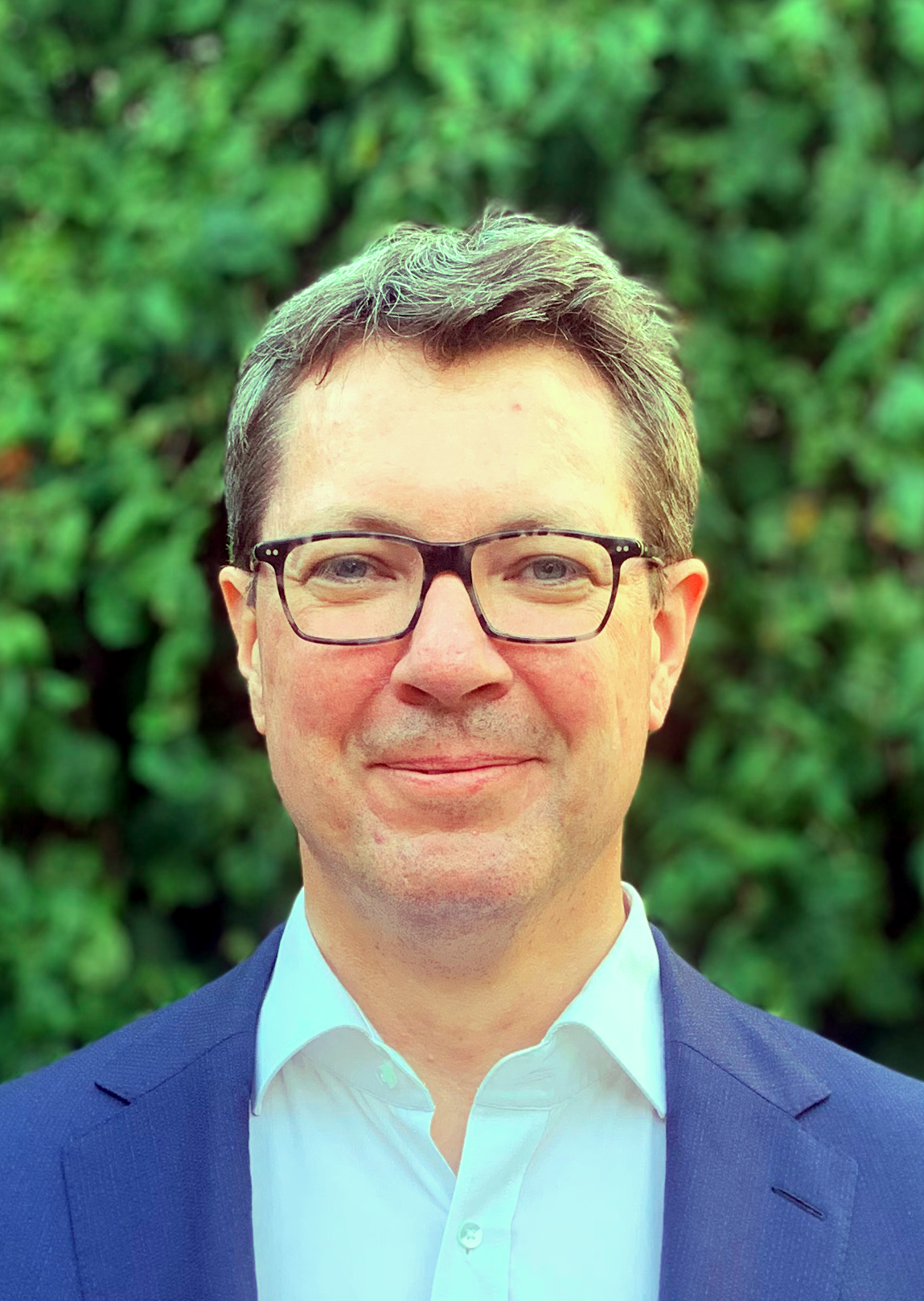 Eduard A Jorswieck
Eduard A Jorswieck
Eduard A. Jorswieck (Fellow, IEEE) is currently the Managing Director of the Institute of Communications Technology, the Head of the Chair for Communications Systems, and a Full Professor at Technische Universitaet Braunschweig, Brunswick, Germany. From 2008 until 2019, he was the Head of the Chair of Communications Theory and a Full Professor at TU Dresden, Germany. His main research interests are in the broad area of communications, applied information theory, signal processing and networking. He has published some 150 journal papers, 15 book chapters, three monographs, one book and more than 300 conference papers on these topics. In 2006, he received the IEEE Signal Processing Society Best Paper Award. Since 2017, he serves as an Editor-in-Chief of the Springer EURASIP JOURNAL ON WIRELESS COMMUNICATIONS AND NETWORKING. He currently serves as an Editor for IEEE TRANSACTIONS ON COMMUNICATIONS. He has served on the Editorial Boards for IEEE TRANSACTIONS ON SIGNAL PROCESSING,IEEE TRANSACTIONS ON WIRELESS COMMUNICATIONS, IEEE SIGNAL PROCESSING LETTERS, and IEEE TRANSACTIONS ON INFORMATION FORENSICS AND SECURITY.
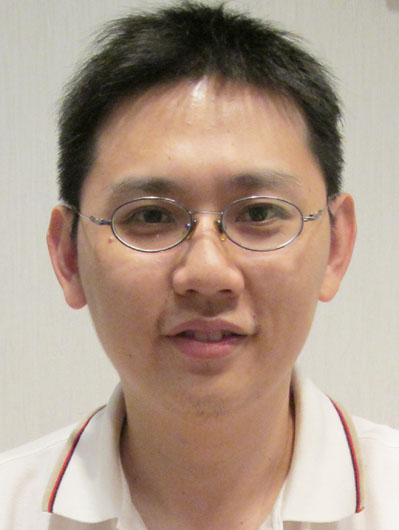 Shih-Chun Lin
Shih-Chun Lin
Shih-Chun Lin (Senior Member, IEEE) received the B.S. and Ph.D. degrees in electrical engineering from the National Taiwan University, Taipei, Taiwan, in 2000 and 2007, respectively. He was a Visiting Student with The Ohio State University, Columbus, OH, USA, in 2007. From 2012 to 2021, he was with the National Taiwan University of Science and Technology, Taipei. In August 2021, he joined the National Taiwan University as an Associate Professor. His research interests include information theory, communications, and cyber-physical security. He received the Best Paper Award for Young Authors from the IEEE IT/COM Society Taipei/Tainan Chapter in 2015 and the Project for Excellent Junior Research Investigators twice from the Ministry of Science and Technology, Taiwan, in 2015 and 2018. He serves as the TPC Co-Chair for the IEEE ICC Workshop on B5G-URLLC 2019 and the Publication Chair for the IEEE ISIT 2023 and GLOBECOM 2020.
Dr. Pin-Hsun Lin received the B.S. and Ph.D. degrees in electrical engineering from National Taiwan University, Taipei, Taiwan, in 2000 and 2010, respectively. From 2011 to 2012 and 2012 to 2014, he was with the INTEL-NTU LAB and the Smart Wireless Lab, National Institute of Information and Communications Technology, Yokosuka, Japan, as a Postdoctoral Associate and researcher, respectively. From 2014 to 2019 and since 2019, he has been a Postdoctoral research associate and fellow with Technische Universit at Dresden, Germany, and with Technische Universit at Braunschweig, Germany, respectively. His research interests include wireless communications and applied information theory. He wast he co-recipient of the best paper award of the International Symposium of Wireless Communication Systems (ISWCS).
Tsung-Hui Chang is an Associate Professor at the School of Science and Engineering, The Chinese University of Hong Kong, Shenzhen, China, and Shenzhen Research Institute of Big Data. His research interests lie in signal processing and optimization methods for wireless communications and machine learning. He is an Elected Member of IEEE SPS SPCOM TC and the Founding Chair of IEEE SPS ISAC TWG. He received the IEEE ComSoc Asian-Pacific Outstanding Young Researcher Award in 2015, and the IEEE SPS Best Paper Award in 2018 and 2021. He is currently a Senior Area Editor of IEEE TSP and an Associate Editor of IEEE OJSP
TUT-7: Spectrum Sharing and Coexistence towards Integrated Sensing and Communications
Sunday, 28 May 2023, 9:00-13:00
Room: S9
Abstract:
Wireless spectrum is a scarce commodity in today's connected and data-hungry world, where demand for higher data rates is increasing exponentially on a daily basis. Beyond 5G cellular systems are venturing more and more into unlicensed spectrum, leading to increased coexistence of a multitude of wireless systems. To tackle this coexistence, efficient spectrum utilization techniques, such as spectrum sharing (SS) and full-duplex (FD) transmission have been considered. While SS can substantially increase the spectrum utilization efficiency by allowing licensed and unlicensed users to share the spectrum, FD radios have the potential to double the spectrum efficiency of current half-duplex links by transmitting and receiving at the same time and frequency resources. Furthermore, they allow simultaneous transmission and sensing (ISAC), opening up avenues for new random-access schemes and various sensing functionalities. The objective of this tutorial is to provide an overview of the following ingredients: 1) Key SS approaches (from cognitive radio to eLSA, CBRS, unlicensed access in 3GPP, etc.); 2) Enabling SS techniques (spectrum sensing, cooperative communications, antenna arrays, resource allocation, etc.) emphasizing multi-antenna benefits; 3) Extending SS to mixed communications and sensing functionalities; 4) Recent trends (FD, radar-communications, SS in mmWave, machine learning-based spectrum monitoring, etc.). This tutorial is based on (but goes much beyond) our recent edited book: Spectrum Sharing: The Next Frontier in Wireless Networks.
Speakers:
Constantinos B. Papadias; Tharmalingam Ratnarajah; Dirk Slock; Christos Masouros
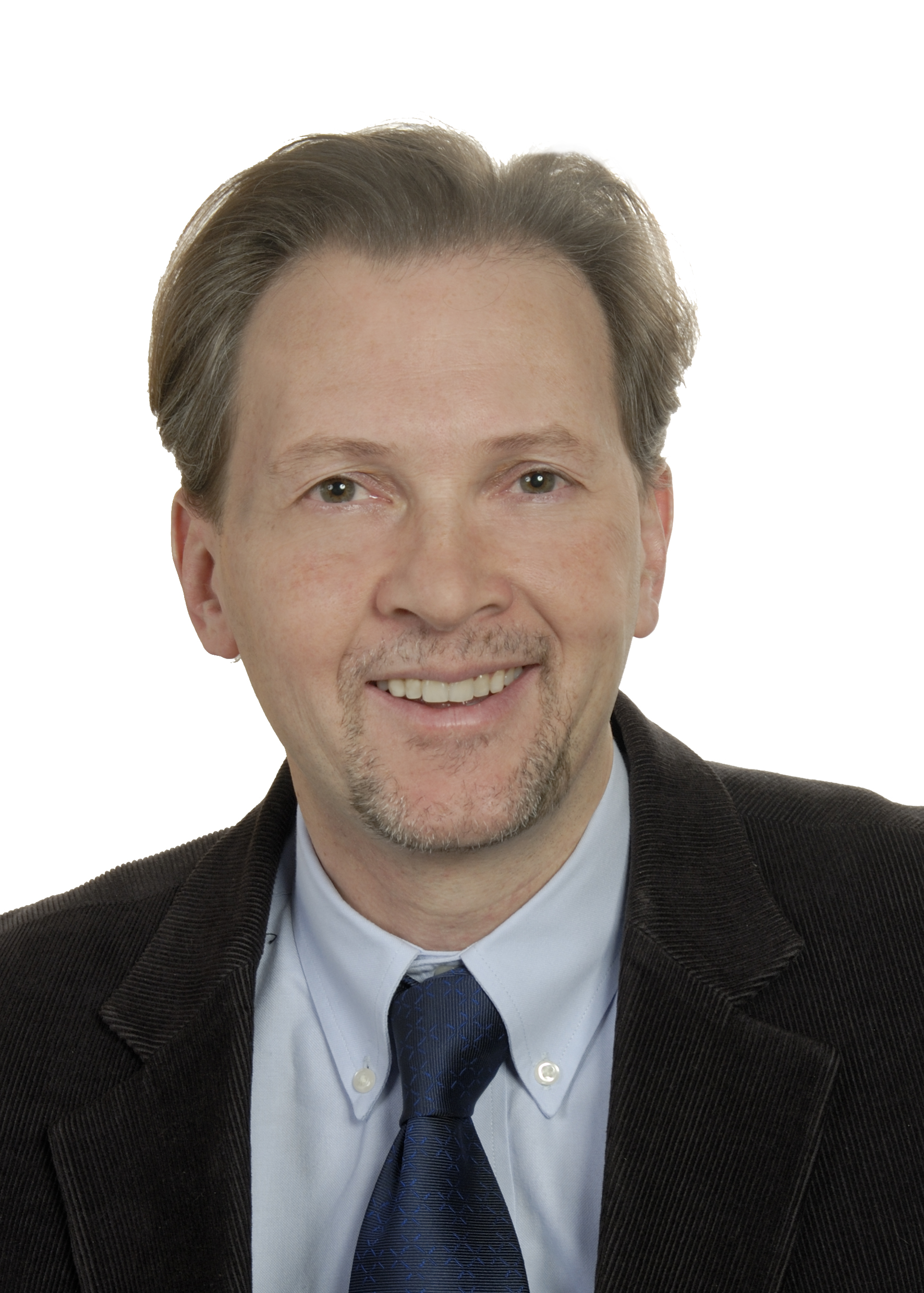 Dr. Constantinos B. Papadias
Dr. Constantinos B. Papadias
Dr. Constantinos B. Papadias is the Executive Director of the Research, Technology and Innovation Network (RTIN) of The American College of Greece (ACG), in Athens, Greece, since 2020. At ACG, he is also Scientific Director of the ACG Research Center (ACG-RC), Head of the Smart Wireless Future Technologies (SWIFT) Lab, Professor of Information Technology at Deree College and Associated Professor at Alba Graduate Business School (AGBS). Prior to these, he was the Dean of Athens Information Technology (AIT), in Athens, Greece, where he was also Head of the Broadband Wireless and Sensor Networks (B-WiSE) Research Group. He currently holds Adjunct Professorships at Aalborg University and at the University of Cyprus. He has been active in IT-related research, addressing areas such as signal processing and machine learning, wireless telecom systems & networks, biomedical engineering and energy efficient technologies for more than 30 years. He has published over 240 scientific papers, 12 patents and 4 books and has received over 10000 citations and several recognitions for his work, including 4 best paper awards. He has participated in and lead several EU-funded research projects, such as the recently completed project PAINLESS on the topic of energy autonomous infrastructure-less wireless networks (2018-2022) where he was Research Coordinator and the ongoing EU CHIST-ERA project FIREMAN on the topic of predictive maintenance via machine type wireless communication systems of which he is Technical Coordinator. He is a Fellow of the Institute of Electrical and Electronics Engineers (IEEE) and of the European Alliance of Innovation. From 2020-2022 he was a member of Greece’s sectorial scientific council of Engineering Sciences, which supports the country’s National Council for Research and Innovation. He was recently elected Director-at-Large of the IEEE Signal Processing Society for Region 8 (Europe, Middle East and Africa).
Prof. Tharmalingam Ratnarajah
Prof. Tharmalingam Ratnarajah (A’96-M’05-SM’05) is a Professor in Digital Communications and Signal Processing with the Institute for Digital Communications, University of Edinburgh, Edinburgh, UK. He was the Head of the Institute for Digital Communications during 2016-2018. His research interests include signal processing and information-theoretic aspects of 6G cellular networks, full-duplex radio, mmWave communications, random matrix theory, big data analytics and machine learning for wireless networks, statistical and array signal processing, physical-layer secrecy and interference alignment. He has published over 425 Peer-reviewed papers in these areas and holds four US patents. He was the coordinator of the European Union (EU) projects HARP (4.6M€) in the area of highly distributed MIMO and ADEL (3.7M€) in the area of licensed shared access. He was also the coordinator of the European Union Future and Emerging Technologies project CROWN (3.4M€) in the area of cognitive radio networks and HIATUS (3.6M€) in the area of interference alignment. Prof Ratnarajah was an associate editor of IEEE Transactions on Signal Processing, 2015-2017, and Technical co-chair, The 17th IEEE International Workshop on Signal Processing Advances in Wireless Communications, Edinburgh, UK, 3-6, July 2016. Prof. Ratnarajah is a Fellow of the Higher Education Academy (FHEA). He has supervised 16 PhD students and 23 post-doctoral research fellows and raised $11.0+ million (USD) of research funding.
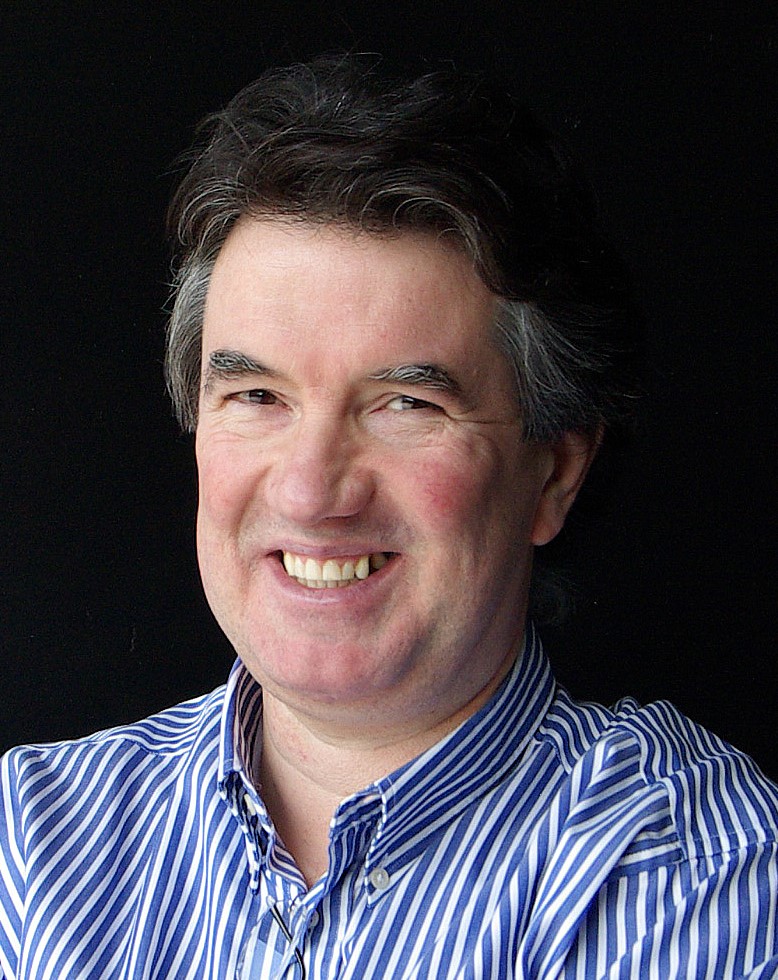 Dirk Slock
Dirk Slock
Dirk T.M. Slock received an EE degree from Ghent University, Belgium in 1982. In 1984 he was awarded a Fulbright scholarship for Stanford University, USA, where he received the MSEE, MS in Statistics, and PhD in EE in 1986, 1989 and 1989 resp. In 1991, he joined EURECOM where he is now professor, teaching statistical signal processing (SSP) and signal processing techniques for wireless communications. He invented semi-blind channel estimation, the chip equalizer-correlator receiver used by 3G HSDPA mobile terminals, spatial multiplexing cyclic delay diversity (MIMO-CDD) now part of LTE, and his work led to the Single Antenna Interference Cancellation (SAIC) integrated in the GSM standard in 2006. Recent keywords are multi-cell multi-user (Massive) MIMO, imperfect CSIT, distributed resource allocation, variational and empirical Bayesian learning techniques, large random matrix analysis, audio source separation, location estimation and exploitation. He graduated over 40 PhD students, leading to an edited book and 500+ papers. In 1992 he received one best journal paper award from IEEE-SP and one from EURASIP. He is the coauthor of two IEEE Globecom'98, one IEEE SIU'04, one IEEE SPAWC'05, one IEEE WPNC’16 and one IEEE SPAWC’18 best student paper award, and a honorary mention (finalist in best student paper contest) at IEEE SSP'05, IWAENC'06, IEEE Asilomar'06 and IEEE ICASSP’17. He was the General Chair of the IEEE-SP SPAWC'06 and IWAENC’14 workshops, and EUSIPCO’15. He cofounded the start-ups SigTone in 2000 (music signal processing products) and Nestwave in 2014 (Ultra Low-Power Indoor and Outdoor Mobile Positioning). He is a Fellow of IEEE and EURASIP. In 2018 he received the URSI France medal.
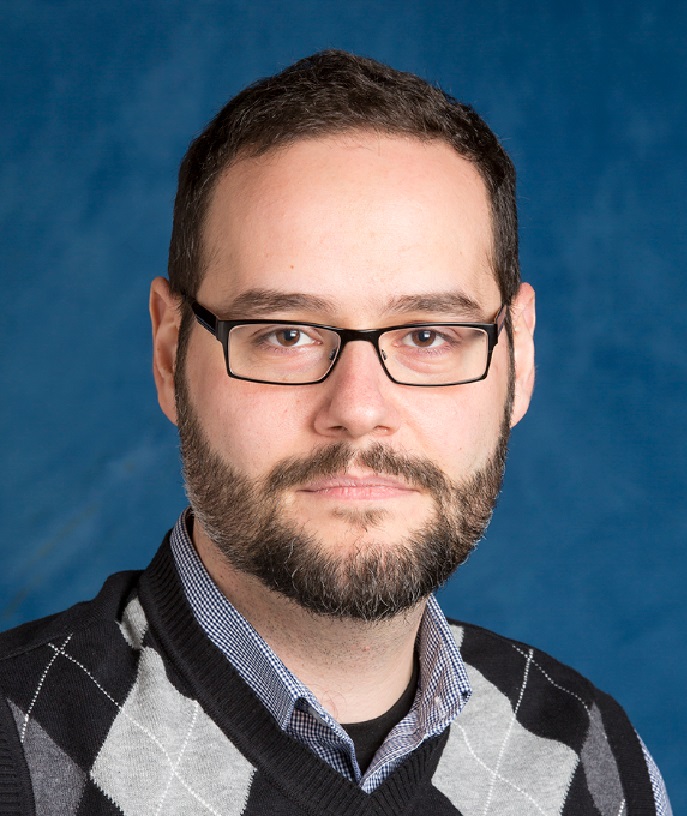 Christos Masouros
Christos Masouros
Christos Masouros (SMIEEE, MIET) received the Diploma degree in Electrical and Computer Engineering from the University of Patras, Greece, in 2004, and MSc by research and PhD in Electrical and Electronic Engineering from the University of Manchester, UK in 2006 and 2009 respectively. In 2008 he was a research intern at Philips Research Labs, UK, working on the LTE standards. Between 2009-2010 he was a Research Associate in the University of Manchester and between 2010-2012 a Research Fellow in Queen's University Belfast. In 2012 he joined University College London as a Lecturer. He has held a Royal Academy of Engineering Research Fellowship between 2011-2016. Since 2019 he is a Full Professor of Signal Processing and Wireless Communications in the Information and Communication Engineering research group, Dept. Electrical and Electronic Engineering, and affiliated with the Institute for Communications and Connected Systems, University College London. His research interests lie in the field of wireless communications and signal processing with particular focus on Green Communications, Large Scale Antenna Systems, Integrated Sensing and Communications, interference mitigation techniques for MIMO and multicarrier communications. Between 2018-22 he was the Project Coordinator of the €4.2m EU H2020 ITN project PAINLESS, involving 12 EU partner universities and industries, towards energy-autonomous networks. Between 2024-28 he will be the Scientific Coordinator of the €2.7m EU H2020 DN project ISLANDS, involving 19 EU partner universities and industries, towards next generation vehicular networks. He was the recipient of the 2023 IEEE ComSoc Stephen O’Rice Prize, co-recipient of the 2021 IEEE SPS Young Author Best Paper Award and the recipient of the Best Paper Awards in the IEEE GlobeCom 2015 and IEEE WCNC 2019 conferences. He has been recognised as an Exemplary Editor for the IEEE Communications Letters, and as an Exemplary Reviewer for the IEEE Transactions on Communications. He is an Editor for IEEE Transactions on Wireless Communications, the IEEE Open Journal of Signal Processing, and Editor-at-Large for IEEE Open Journal of the Communications Society. He has been an Editor for IEEE Transactions on Communications, IEEE Communications Letters, and a Guest Editor for a number of IEEE Journal on Selected Topics in Signal Processing and IEEE Journal on Selected Areas in Communications issues. He is a founding member and Vice-Chair of the IEEE Emerging Technology Initiative on Integrated Sensing and Communications (SAC), Vice Chair of the IEEE Wireless Communications Technical Committee Special Interest Group on ISAC, and Chair of the IEEE Green Communications & Computing Technical Committee, Special Interest Group on Green ISAC. He is the TPC chair for the IEEE ICC 2024 Selected Areas in Communications (SAC) Track on ISAC.
TUT-8: Introduction to Quantum Communications
Sunday, 28 May 2023, 9:00-13:00
Room: M5
Abstract:
Moore's laws has indeed prevailed since he outlined his empirical rule-of-thumb in 1965, but based on this trend the scale of integration is set to depart from classical physics, entering nano-scale integration, where the postulates of quantum physics have to be obeyed. The quest for quantum-domain communication solutions was inspired by Feynman's revolutionary idea in 1985: particles such as photons or electrons might be relied upon for encoding, processing and delivering information. Hence in the light of these trends it is extremely timely to build an interdisciplinary momentum in the area of quantum communications, where there is an abundance of open problems for a broad community to solve collaboratively.
Speaker:
Lajos Hanzo
Lajos Hanzo (http://www-mobile.ecs.soton.ac.uk, https://en.wikipedia.org/wiki/Lajos_Hanzo) (FIEEE'04) received Honorary Doctorates from the Technical University of Budapest and Edinburgh University. He is a Foreign Member of the Hungarian Science-Academy, Fellow of the Royal Academy of Engineering (FREng), of the IET, of EURASIP and holds the IEEE Eric Sumner Technical Field Award.
TUT-9: Fundamental Theory and Recent Progress of Cell-Free Massive MIMO
Sunday, 28 May 2023, 14:30-18:00
Room: G
Abstract:
After five generations of cellular network technology, we are reaching the end of its evolution due to unavoidable intercell interference and geometric signal strength variations. Suppose all the antennas that serve the mobile terminals are distributed over the coverage area instead of co-located in arrays at a few elevated locations as in cellular networks. In such a post-cellular network, the mobile terminals are surrounded by antennas instead of having a few base stations surrounded by mobile terminals. If each terminal is served by coherent joint transmission and reception from all the neighboring access points, we have a "User-Centric Cell-Free Massive MIMO system". In this tutorial, we will first go through the foundations and motivation behind Cell-Free Massive MIMO. We will then describe the basic models and algorithms for channel estimation and data transmission in the uplink and downlink. In the remainder of the tutorial, we will cover recent insights and results regarding sequential signal processing, random access, scheduling, operation with multi-antenna devices, and the combination of Cell-free Massive MIMO and reconfigurable intelligent surfaces. We will end the tutorial with a discussion on the main open challenges.
Speakers:
Emil Björnson; Jiayi Zhang
Emil Björnson
Emil Björnson is a Professor of Wireless Communication at the KTH Royal Institute of Technology, Stockholm, Sweden. He is an IEEE Fellow, Digital Futures Fellow, and Wallenberg Academy Fellow. He has a podcast and YouTube channel called Wireless Future. His research focuses on multi-antenna communications and radio resource management, using methods from communication theory, signal processing, and machine learning. He has authored three textbooks and has published a large amount of simulation code. He has received the 2018 and 2022 IEEE Marconi Prize Paper Awards in Wireless Communications, the 2019 EURASIP Early Career Award, the 2019 IEEE Communications Society Fred W. Ellersick Prize, the 2019 IEEE Signal Processing Magazine Best Column Award, the 2020 Pierre-Simon Laplace Early Career Technical Achievement Award, the 2020 CTTC Early Achievement Award, and the 2021 IEEE ComSoc RCC Early Achievement Award. He also received six Best Paper Awards at conferences.
Jiayi Zhang
Jiayi Zhang received the B.Sc. and Ph.D. degree from Beijing Jiaotong University, China in 2007 and 2014, respectively. Since 2016, he has been a Professor with School of Electronic and Information Engineering, Beijing Jiaotong University, China. His current research interests include cell-free massive MIMO, reconfigurable intelligent surface, and extremely large-scale massive MIMO. He was the Exemplary Editor of IEEE CL in 2021. He was the Lead Guest Editor of the special issue on "Multiple Antenna Technologies for Beyond 5G" of the IEEE JSAC. He currently serves as an Associate Editor for IEEE TCOM.
TUT-10: Interplay between Sensing and Communications: Fundamental Limits, Signal Processing, and Prototyping
Sunday, 28 May 2023, 14:30-18:00
Room: L
Abstract:
As the standardization of 5G gradually solidifies, researchers are speculating what 6G will be. A common theme in many perspectives is that 6G Radio Access Network (RAN) should become multi-functional. Jointly suggested by recent advances from the communications and signal processing communities, radio sensing functionality can be integrated into 6G RAN in a low-cost and fast manner. Therefore, the future cellular network could image and measure the surrounding environment to enable advanced location-aware services, ranging from the physical to application layers. This type of research is typically referred to as Integrated Sensing and Communications (ISAC), which has found applications in numerous emerging areas, including vehicular networks, environmental monitoring, Internet of Things, as well as indoor services such as human activity recognition. In this tutorial, we will firstly overview the background and application scenarios of ISAC. As a step further, we will introduce the state-of-the-art research progress on this topic, which consists of 4 technical parts: 1) Fundamental Limits, 2) Waveform Design for ISAC, 3) Applications Supported by ISAC, and 4) ISAC Prototyping. Finally, we will conclude the tutorial by summarizing the future directions and open problems in the area of ISAC.
Speakers:
Fan Liu; Christos Masouros; Yonina C. Eldar
Fan Liu
Dr. Fan Liu is currently an Assistant Professor of the Department of Electrical and Electronic Engineering, Southern University of Science and Technology (SUSTech). He received the Ph.D. and the BEng. degrees from Beijing Institute of Technology (BIT), Beijing, China, in 2018 and 2013, respectively. He has previously held academic positions in the University College London (UCL), UK, first as a Visiting Researcher from 2016 to 2018, and then as a Marie Curie Research Fellow from 2018 to 2020. Dr. Fan Liu's research interests lie in the general area of signal processing and wireless communications, and in particular in the area of Integrated Sensing and Communications (ISAC). He has 10 publications selected as IEEE ComSoc Besting Readings in ISAC. He is the Founding Academic Chair of the IEEE ComSoc ISAC Emerging Technology Initiative (ISAC-ETI), an Associate Editor for the IEEE Communications Letters and the IEEE Open Journal of Signal Processing, and a Guest Editor of the IEEE Journal on Selected Areas in Communications, IEEE Wireless Communications, and China Communications. He was also an organizer and Co-Chair for numerous workshops, special sessions and tutorials in flagship IEEE/ACM conferences, including ICC, GLOBECOM, ICASSP, and MobiCom. He is the TPC Co-Chair of the 2nd and 3rd IEEE Joint Communication and Sensing Symposium (JC&S), and will serve as a Symposium Co-Chair for the IEEE GLOBECOM 2023 and IEEE WCNC 2024. He is a Member of the IMT-2030 (6G) ISAC Task Group. He was the recipient of the IEEE Signal Processing Society Young Author Best Paper Award of 2021, the Best Ph.D. Thesis Award of Chinese Institute of Electronics of 2019, the EU Marie Curie Individual Fellowship in 2018, and has been named as an Exemplary Reviewer for IEEE TWC/TCOM/COMML for 5 times. Dr. Liu was listed in the World's Top 2% Scientists by Stanford University for citation impact in 2021 and 2022.
Christos Masouros

Christos Masouros (SMIEEE, MIET) received the Diploma degree in Electrical and Computer Engineering from the University of Patras, Greece, in 2004, and MSc by research and PhD in Electrical and Electronic Engineering from the University of Manchester, UK in 2006 and 2009 respectively. In 2008 he was a research intern at Philips Research Labs, UK, working on the LTE standards. Between 2009-2010 he was a Research Associate in the University of Manchester and between 2010-2012 a Research Fellow in Queen's University Belfast. In 2012 he joined University College London as a Lecturer. He has held a Royal Academy of Engineering Research Fellowship between 2011-2016. Since 2019 he is a Full Professor of Signal Processing and Wireless Communications in the Information and Communication Engineering research group, Dept. Electrical and Electronic Engineering, and affiliated with the Institute for Communications and Connected Systems, University College London. His research interests lie in the field of wireless communications and signal processing with particular focus on Green Communications, Large Scale Antenna Systems, Integrated Sensing and Communications, interference mitigation techniques for MIMO and multicarrier communications. Between 2018-22 he was the Project Coordinator of the €4.2m EU H2020 ITN project PAINLESS, involving 12 EU partner universities and industries, towards energy-autonomous networks. Between 2024-28 he will be the Scientific Coordinator of the €2.7m EU H2020 DN project ISLANDS, involving 19 EU partner universities and industries, towards next generation vehicular networks. He was the recipient of the 2023 IEEE ComSoc Stephen O’Rice Prize, co-recipient of the 2021 IEEE SPS Young Author Best Paper Award and the recipient of the Best Paper Awards in the IEEE GlobeCom 2015 and IEEE WCNC 2019 conferences. He has been recognised as an Exemplary Editor for the IEEE Communications Letters, and as an Exemplary Reviewer for the IEEE Transactions on Communications. He is an Editor for IEEE Transactions on Wireless Communications, the IEEE Open Journal of Signal Processing, and Editor-at-Large for IEEE Open Journal of the Communications Society. He has been an Editor for IEEE Transactions on Communications, IEEE Communications Letters, and a Guest Editor for a number of IEEE Journal on Selected Topics in Signal Processing and IEEE Journal on Selected Areas in Communications issues. He is a founding member and Vice-Chair of the IEEE Emerging Technology Initiative on Integrated Sensing and Communications (SAC), Vice Chair of the IEEE Wireless Communications Technical Committee Special Interest Group on ISAC, and Chair of the IEEE Green Communications & Computing Technical Committee, Special Interest Group on Green ISAC. He is the TPC chair for the IEEE ICC 2024 Selected Areas in Communications (SAC) Track on ISAC.
Yonina C. Eldar
 Yonina Eldar is a Professor in the Department of Mathematics and Computer Science, Weizmann Institute of Science, Rehovot, Israel where she heads the center for Biomedical Engineering and Signal Processing and holds the Dorothy and Patrick Gorman Professorial Chair. She is also a Visiting Professor at MIT, a Visiting Scientist at the Broad Institute, and an Adjunct Professor at Duke University and was a Visiting Professor at Stanford. She is a member of the Israel Academy of Sciences and Humanities, an IEEE Fellow and a EURASIP Fellow. She received the B.Sc. degree in physics and the B.Sc. degree in electrical engineering from Tel-Aviv University, and the Ph.D. degree in electrical engineering and computer science from MIT, in 2002. She has received many awards for excellence in research and teaching, including the IEEE Signal Processing Society Technical Achievement Award (2013), the IEEE/AESS Fred Nathanson Memorial Radar Award (2014) and the IEEE Kiyo Tomiyasu Award (2016). She was a Horev Fellow of the Leaders in Science and Technology program at the Technion and an Alon Fellow. She received the Michael Bruno Memorial Award from the Rothschild Foundation, the Weizmann Prize for Exact Sciences, the Wolf Foundation Krill Prize for Excellence in Scientific Research, the Henry Taub Prize for Excellence in Research (twice), the Hershel Rich Innovation Award (three times), and the Award for Women with Distinguished Contributions. She received several best paper awards and best demo awards together with her research students and colleagues, was selected as one of the 50 most influential women in Israel, and was a member of the Israel Committee for Higher Education. She is the Editor in Chief of Foundations and Trends in Signal Processing, a member of several IEEE Technical Committees and Award Committees, and heads the Committee for Promoting Gender Fairness in Higher Education Institutions in Israel.
Yonina Eldar is a Professor in the Department of Mathematics and Computer Science, Weizmann Institute of Science, Rehovot, Israel where she heads the center for Biomedical Engineering and Signal Processing and holds the Dorothy and Patrick Gorman Professorial Chair. She is also a Visiting Professor at MIT, a Visiting Scientist at the Broad Institute, and an Adjunct Professor at Duke University and was a Visiting Professor at Stanford. She is a member of the Israel Academy of Sciences and Humanities, an IEEE Fellow and a EURASIP Fellow. She received the B.Sc. degree in physics and the B.Sc. degree in electrical engineering from Tel-Aviv University, and the Ph.D. degree in electrical engineering and computer science from MIT, in 2002. She has received many awards for excellence in research and teaching, including the IEEE Signal Processing Society Technical Achievement Award (2013), the IEEE/AESS Fred Nathanson Memorial Radar Award (2014) and the IEEE Kiyo Tomiyasu Award (2016). She was a Horev Fellow of the Leaders in Science and Technology program at the Technion and an Alon Fellow. She received the Michael Bruno Memorial Award from the Rothschild Foundation, the Weizmann Prize for Exact Sciences, the Wolf Foundation Krill Prize for Excellence in Scientific Research, the Henry Taub Prize for Excellence in Research (twice), the Hershel Rich Innovation Award (three times), and the Award for Women with Distinguished Contributions. She received several best paper awards and best demo awards together with her research students and colleagues, was selected as one of the 50 most influential women in Israel, and was a member of the Israel Committee for Higher Education. She is the Editor in Chief of Foundations and Trends in Signal Processing, a member of several IEEE Technical Committees and Award Committees, and heads the Committee for Promoting Gender Fairness in Higher Education Institutions in Israel.
TUT-11: 5G Non-Terrestrial Networks (NTN): Recent Advancements, Open Challenges, and the Way Towards 6G-NTN
Sunday, 28 May 2023, 14:30-18:00
Room: M8
Abstract:
The integration of 5G with Non-Terrestrial Network (NTN) components is going through a series of technological advancements and soon satellites will be a part of the 5G ecosystem. The integration is boosted-up by its standardization in the 3GPP Release-17. It is also foreseen that NTN along with Artificial Intelligence (AI) and Machine Learning (ML) techniques will be a key enabler for 6G systems. The advantages are enormous and so are the challenges. This tutorial aims to educate the audience on the latest advancements in 5G-NTN, the current status of research, implementation challenges, experimentation tools, and open research problems. The first part of the tutorial overviews the basics of 5G-NTN, use cases and architectures. The second part addresses the standardization of NTN in the 5G ecosystem followed by the technical challenges. Recently developed simulation tools for 5G-NTN research will also be discussed. The third part of the tutorial focuses on the long-term outlook and path towards 6G-NTN. The role of AI and ML techniques will be detailed. Besides, Open-RAN based 5G/6G-NTN architectures will be presented which are critical for satellite on-board gNB/UE. Finally, open research challenges will be proposed for further research.
Speakers:
SUMIT KUMAR
SUMIT KUMAR (Member, IEEE) received the B.Tech in Electronics & Communication Engineering from Gurukula Kangri University, Haridwar, India (2008), M.S. in Wireless Communication and Signal Processing from International Institute of Information Technology, Hyderabad, India (2014), and a Ph.D. in Wireless Communication from Eurecom, France (2019). During his Master’s, he worked on several projects funded by the Department of Science and Technology, India. His Ph.D. thesis was devoted to interference management and co-existence of wireless systems where architecture for a multi-standard SDR receiver was developed and demonstrated. In 2019, he joined the SIGCOM research group, Interdisciplinary Centre for Security, Reliability, and Trust (SnT) at the University of Luxembourg, Luxembourg as a Research Associate. He is involved in several European Space Agency (ESA) and Luxembourgish national projects related to 5G, 5G Non-Terrestrial Networks, EMF Radiation, and Satellite Communication. His research interests include Software Defined Radio, Interference Management, 5G, 5GNTN, and Computer Networking.
JORGE QUEROL
JORGE QUEROL (Member, IEEE) was born in Forcall, Castell´o, Spain, in 1987. He received a B.Sc. degree in telecommunication engineering, an M.Sc. degree in electronics engineering, an M.Sc. degree in photonics, and a Ph.D. degree (cum laude) in signal processing and communications from the Universitat Polit`ecnica de Catalunya - BarcelonaTech (UPC), Barcelona, Spain, in 2011, 2012, 2013, and 2018, respectively. His Ph.D. thesis was devoted to the development of novel antijamming and counter-interference systems for global navigation satellite systems (GNSS), GNSS-reflectometry, and microwave radiometry. One of his outstanding achievements was the development of a real-time standalone pre-correlation mitigation system for GNSS, named FENIX, in a customized software-defined radio (SDR) platform. FENIX was patented, licensed, and commercialized by MITIC Solutions, a UPC spin-off company. In 2018, he joined the SIGCOM Research Group, Interdisciplinary Centre for Security, Reliability, and Trust (SnT), University of Luxembourg, Luxembourg as a Research Associate, and he was promoted to Research Scientist in 2021. He is also the head of the SatComLab/5G-SpaceLab. He is involved in several ESA and Luxembourgish national research projects dealing with signal processing and satellite and space communications, signal processing, and satellite navigation. His research interests include software-defined radios (SDR), real-time signal processing, satellite communications, 5G nonterrestrial networks, satellite navigation, and remote sensing. Dr. Querol received the Best Academic Record Award of the Year in Electronics Engineering at UPC in 2012, the First Prize of the European Satellite Navigation Competition (ESNC) Barcelona Challenge from the European GNSS Agency (GSA) in 2015, the Best Innovative Project of the Market Assessment Program (MAP) of the EADA Business School in 2016, the Award Isabel P. Trabal from Fundaci´o Caixa dEnginyers for its quality research during his Ph.D. in 2017, and the Best Ph.D. Thesis Award in remote sensing in Spain from the IEEE Geoscience and Remote Sensing (GRSS) Spanish Chapter in 2019.
SYMEON CHATZINOTAS
SYMEON CHATZINOTAS (Senior Member, IEEE) is currently a Full Professor/Chief Scientist-I and the Head of the SIGCOM Research Group, SnT, University of Luxembourg. He is coordinating the research activities on communications and networking, acting as a PI for more than 20 projects and main representative for 3GPP, ETSI, and DVB. In the past, he has been a Visiting Professor with the University of Parma, Italy, lecturing on 5G wireless networks. He was involved in numerous research and development projects for NCSR Demokritos, CERTH Hellas and CCSR, and the University of Surrey. He has coauthored more than 450 technical papers in refereed international journals, conferences, and scientific books. He was a co-recipient of the 2014 IEEE Distinguished Contributions to Satellite Communications Award and the Best Paper Awards at EURASIP JWCN, CROWNCOM, and ICSSC. He is on the Editorial Board of the IEEE TRANSACTIONS ON COMMUNICATIONS, IEEE OPEN JOURNAL OF VEHICULAR TECHNOLOGY, and the International Journal of Satellite Communications and Networking.
TUT-12: Leveraging Smart Wireless Environments for Beyond 5G Localization and Sensing
Sunday, 28 May 2023, 14:30-18:00
Room: S6
Abstract:
Incorporating Reconfigurable Intelligent Surfaces (RISs) in wireless communication networks has been recently advocated as a revolutionary means to transform the naturally passive radio propagation environment to a programmable one. RISs are artificial planar structures with integrated electronic circuits comprising large numbers of metamaterials, which can be dynamically optimized to tame the reflection of impinging electromagnetic signals at will. The extra degrees of freedom offered by RIS-enabled smart wireless environments have been recently exploited for high-precision localization and sensing, even without the intervention of any access point. The goal of this tutorial is to provide attendees with an overview of the state-of-the-art in RISs-empowered localization and sensing approaches, and their beyond 5G applications. In particular, the tutorial has the following four core objectives: i) to detail the various available hardware architectures for RISs, their available modeling approaches, and their implications in the design of localization and sensing algorithms; ii) to discuss how RIS-enabled smart wireless environments can boost or enable localization; iii) to detail how RISs can support sensing and radar applications beyond the ability provided by 5G and earlier generations; and iv) to present simultaneous localization and radio mapping techniques leveraging programmable signal reflections.
Speakers:
George C. Alexandropoulos; Henk Wymeersch
George C. Alexandropoulos
George C. Alexandropoulos holds the Ph.D. degree in wireless communications from the School of Engineering, University of Patras, Greece. He has held senior research positions at various Greek universities and research institutes, and he was a Senior Research Engineer and a Principal Researcher at the Mathematical and Algorithmic Sciences Lab, Paris Research Center, Huawei Technologies France, and at the Technology Innovation Institute, Abu Dhabi, United Arab Emirates, respectively. He is currently an Assistant Professor with the Department of Informatics and Telecommunications, School of Sciences, National and Kapodistrian University of Athens (NKUA), Greece. His research interests span the general areas of algorithmic design and performance analysis for wireless networks with emphasis on multi-antenna transceiver hardware architectures, full duplex radios, active and passive Reconfigurable Intelligent Surfaces (RISs), integrated communications and sensing, millimeter wave and THz communications, as well as distributed machine learning algorithms. He currently serves as an Editor for IEEE Transactions on Communications, IEEE Wireless Communications Letters, Frontiers in Communications and Networks, and the ITU Journal on Future and Evolving Technologies. Prof. Alexandropoulos is a Senior Member of the IEEE Communications, Signal Processing, Vehicular Technology, and Information Theory Societies, the vice-chair of the EURASIP Technical Area Committee on Signal Processing for Communications and Networking, as well as a registered Professional Engineer of the Technical Chamber of Greece. He is also a Distinguished Lecturer of the IEEE Communications Society. He has participated and/or technically managed more than 15 European Union (EU), international, and Greek research, innovation, and development projects. He is currently NKUA's principal investigator for the EU H2020 RISE‑6G and the SNS JU TERRAMETA projects dealing with RIS-empowered smart wireless environments and THz RISs, respectively. For the former project, he also serves as the dissemination manager, whereas, for the latter, as the technical manager. He has received the best Ph.D. thesis award 2010, the IEEE Communications Society Best Young Professional in Industry Award 2018, the EURASIP Best Paper Award of the Journal on Wireless Communications and Networking 2021, the IEEE Marconi Prize Paper Award in Wireless Communications 2021, and a Best Paper Award from the IEEE GLOBECOM 2021. More information is available at www.alexandropoulos.info.
Henk Wymeersch
Henk Wymeersch obtained the Ph.D. degree in Electrical Engineering/Applied Sciences in 2005 from Ghent University, Belgium. He is currently a Professor of Communication Systems with the Department of Electrical Engineering at Chalmers University of Technology, Sweden. He is also a Distinguished Research Associate with Eindhoven University of Technology. Prior to joining Chalmers, he was a postdoctoral researcher from 2005 until 2009 with the Laboratory for Information and Decision Systems at the Massachusetts Institute of Technology. Prof. Wymeersch served as Associate Editor for IEEE Communication Letters (2009-2013), IEEE Transactions on Wireless Communications (since 2013), and IEEE Transactions on Communications (2016-2018) and is currently Senior Member of the IEEE Signal Processing Magazine Editorial Board. During 2019-2021, he was an IEEE Distinguished Lecturer with the Vehicular Technology Society. His current research interests include the convergence of communication and sensing, in a 5G and Beyond 5G context.
TUT-13: Localization-of-Things: From Foundation to B5G Ecosystem
Sunday, 28 May 2023, 14:30-18:00
Room: S7
Abstract:
The availability of real-time high-accuracy location awareness is essential for current and future wireless applications, particularly those involving Internet-of-Things and beyond 5G ecosystem. Reliable localization and navigation of people, objects, and vehicles -Localization-of-Things (LoT)- is a critical component for a diverse set of applications including connected communities, smart environments, vehicle autonomy, asset tracking, medical services, military systems, and crowd sensing. The coming years will see the emergence of network localization and navigation in challenging environments with sub-meter accuracy and minimal infrastructure requirements.
We will discuss limitations of traditional positioning, and move on to the key enablers for high-accuracy location awareness: wideband transmission and cooperative processing. Topics covered will include: fundamental bounds, cooperative algorithms for 5G and B5G standardized scenarios, and network experimentation. Fundamental bounds serve as performance benchmarks, and as a tool for network design. Cooperative algorithms are a way to achieve dramatic performance improvements compared to traditional noncooperative positioning. To harness these benefits, system designers must consider realistic operational settings; thus, we present the performance of cooperative localization based on measurement campaigns. We will also present LoT enablers, including reconfigurable intelligent surfaces, which promise to provide a dramatic gain in localization accuracy and system robustness in next generation networks.
Speakers:
Moe Z. Win
Moe Win is a Professor at the Massachusetts Institute of Technology (MIT). Prior to joining MIT, he was at AT&T Research Laboratories for five years and at the Jet Propulsion Laboratory for seven years. His research encompasses fundamental theories, algorithm design, and network experimentation for a broad range of real-world problems. His current research topics include network localization and navigation, network interference exploitation, and quantum information science. Professor Win has served the IEEE Communications Society as an elected Member-at-Large on the Board of Governors, as elected Chair of the Radio Communications Committee, and as an IEEE Distinguished Lecturer. Over the last two decades, he held various Editorial posts for IEEE journals and organized numerous international conferences. Currently, he is serving on the SIAM Diversity Advisory Committee. He was honored with two IEEE Technical Field Awards: the IEEE Kiyo Tomiyasu Award and the IEEE Eric E. Sumner Award. Other recognitions include the MIT Everett Moore Baker Award, the IEEE Vehicular Technology Society James Evans Avant Garde Award, the IEEE Communications Society Edwin H. Armstrong Achievement Award, the Cristoforo Colombo International Prize for Communications, the Copernicus Fellowship and the Laurea Honoris Causa from the University of Ferrara, and the U.S. Presidential Early Career Award for Scientists and Engineers. Professor Win is elected Fellow of the AAAS, the EURASIP, the IEEE, and the IET. He is an ISI Highly Cited Researcher.
Andrea Conti
Andrea Conti is a Professor at the University of Ferrara and Research Affiliate at the MIT Wireless Information and Network Sciences Laboratory. His research interests involve theory and experimentation of wireless systems and networks including network localization and distributed sensing. He received the HTE Puskás Tivadar Medal, the IEEE Communications Society’s Stephen O. Rice Prize in the field of Communications Theory, and the IEEE Communications Society’s Fred W. Ellersick Prize. Dr. Conti has served as editor for IEEE journals, as well as chaired international conferences. He has been elected Chair of the IEEE Communications Society’s Radio Communications Technical Committee. He is a co-founder and elected Secretary of the IEEE Quantum Communications & Information Technology Emerging Technical Subcommittee. Professor Conti is an elected Fellow of the IEEE and of the IET, and he has been selected as an IEEE Distinguished Lecturer.
TUT-14: Wireless Edge intelligence: From Edge Learning to Goal-oriented Communications
Sunday, 28 May 2023, 14:30-18:00
Room: S8
Abstract:
The research on 6G has already kicked-off all around the world. While the question of what will 6G be is still open, it is certain that Artificial Intelligence (AI) will be a native component of such networks. This comes with two facets: i) Learning to communicate, by which AI tools are exploited for flexible and autonomous network optimization, and ii) Communicating to learn, by which 6G is exploited as an efficient AI platform. Focusing on the latter, but also exploiting tools from the former, this tutorial aims at providing vision, challenges, and tools that will effectively enable edge AI with target performance in terms of energy, delay, and learning reliability. Starting from the concept that edge learning is a computation offloading service supported by Multi-access Edge Computing (i.e., AI as a service), the tutorial first presents a journey through the joint optimization of radio and computing resources with target energy/delay performance. Building on such tools, the lecture then focuses on edge inference, which requires a third axis: inference reliability. Finally, the new paradigm of goal-oriented semantic communications in the context of edge learning concludes the tutorial, to complete the vision towards effective enablement of 6G as an efficient AI platform.
Speakers:
Prof. Sergio Barbarossa
Prof. Sergio Barbarossa (Fellow, IEEE) received the M.S. and Ph.D. EE degrees from the University of Rome “La Sapienza,” Rome, Italy, where he is currently a Full Professor and a Senior Research Fellow with the Sapienza School for Advanced Studies (SSAS), Sapienza University of Rome, Rome, Italy. He has held Visiting Positions with the Environmental Research Institute of Michigan, in 1988, University of Virginia, in 1995 and 1997, and University of Minnesota, in 1999. He is a EURASIP Fellow. His research interests include 5G networks, mobile edge computing, machine learning, and topological signal processing. He served as an IEEE Distinguished Lecturer and received the IEEE Best Paper Awards from the IEEE Signal Processing Society for the years 2000 and 2014. He received the 2010 Technical Achievements Award from the European Association for Signal Processing (EURASIP) society for his contributions on radar, communication, and networks. He has been the Scientific Coordinator of several EU projects on wireless sensor networks, small cell networks, distributed mobile cloud computing, and 5G networks. He is currently involved in the EU/Taiwan H2020 project 5G-CONNI aimed at enabling Industry 4.0 using private 5G networks Prof. Paolo Di Lorenzo, Dept. of Information Engineering, Electronics, and Telecommunications, Sapienza University of Rome, 00184, Rome, Italy. Email: paolo.dilorenzo@uniroma1.it
Paolo Di Lorenzo
Paolo Di Lorenzo (Senior Member, IEEE) is an Associate Professor in the Department of Information Engineering, Electronics and Telecommunications, Sapienza University of Rome. He received the M.Sc. and Ph.D. degrees in Telecommunication Engineering in 2008 and 2012, respectively, both from 4 Sapienza University of Rome. From May 2015 to February 2018, he was Assistant Professor in the Department of Engineering, University of Perugia, Italy. From March 2018 to February 2021, he was a Tenure Track Assistant Professor in the Department of Information Engineering, Electronics and Telecommunications, Sapienza University of Rome, Italy. His primary research interests lie in the areas of signal processing theory and methods, learning over complex networks, distributed optimization, graph signal processing, wireless edge intelligence, and wireless communications. He is principal investigator of the research unit (Sapienza-CNIT) for the H2020 EU RISE-6G project. He is recipient of the 2022 EURASIP Early Career Award. He has received three best student paper awards, which were sponsored by the IEEE signal processing society and EURASIP. He was also recipient of the 2012 GTTI award for the best doctoral thesis in information and communication technologies. He serves as an Associate Editor for the IEEE Transactions on Signal Processing.
Dr. Mattia Merluzzi
Dr. Mattia Merluzzi received the M.S. degree in Telecommunication Engineering and the Ph.D. degree in Information and Communication Technologies from Sapienza University of Rome, Italy, in 2017 and 2021, respectively. He is currently a research engineer at CEA-Leti, Grenoble, France, where he is involved in the research team of the H2020 project Hexa-X. He has participated in the H2020 EU/Japan project 5G-Miedge, the H2020 EU/Taiwan project 5G CONNI and the MIUR funded PRIN Liquid Edge. His primary research interests are in edge computing, beyond 5G systems, stochastic optimization, and edge machine learning/artificial intelligence. He was recipient of the 2021 GTTI Best Ph.D. Thesis Award.
TUT-15: Meta Learning for Future Wireless Networks: Basics and Applications
Sunday, 28 May 2023, 14:30-18:00
Room: S9
Abstract:
Machine learning (ML) has been recognized as a key ingredient for future (e.g., 6G) communications systems. However, most of the current ML methods assume the availability of a large amount of data which can be a major challenge in the real world. Meta learning, also referred to as learning to learn, offers a potential solution for this challenge. It aims to learn models which can quickly adapt to new tasks with a few samples and thus can achieve better performance in a non-stationary environment. This tutorial will provide a friendly introduction to different meta learning techniques as well as their applications to the design and optimization of wireless communications networks. After presenting the fundamentals of meta learning, we will discuss the motivation for using meta learning for the evolving future cellular networks. In particular, three types of meta learning including: 1) gradient-based methods, 2) metric based methods, and 3) memory based methods will be introduced from concepts to mathematical formulations. Then, applications of meta learning to different "wireless" problems, including resource allocation, edge computing, channel estimation, will be discussed. Finally, the current trends, open research challenges and future research directions on using meta learning in wireless networks will be discussed.
Speakers:
Di Wu
Di Wu is currently a staff research scientist at Samsung AI Center (SAIC), Montreal, Canada, and working on advanced ML techniques such as reinforcement learning, deep learning, and meta learning. He is also serving as the Tech Lead for the AI for Telecommunication team at SAIC Montreal. Before joining Samsung, he did postdoctoral research at Stanford University and Montreal MILA. He received the Ph.D. degree from McGill University, Montreal, Canada, in 2018 and the M.S degree from Peking University, Beijing, China, in 2013. Di’s research interests mainly lie in reinforcement learning and data-efficient machine learning algorithms (e.g., transfer learning, metalearning, and multitask learning). He is also interested in leveraging such algorithms for applications in real-world systems (e.g., smart grid and communications systems). •
Ekram Hossain
Ekram Hossain (F’15) is Professor in the Department of Electrical and Computer Engineering at University of Manitoba, Canada (http://home.cc.umanitoba.ca/∼hossaina). He was listed as a Clarivate Analytics Highly Cited Researcher in Computer Science in 2017, 2018, 2019, 2020, and 2021. His current research focuses on ML-based design of B5G/6G communications and networks, modeling and analysis of large-scale wireless networks, applied ML, and network economics. In addition to publishing extensively, he has delivered many tutorials (30+) and keynote/invited talks (100+) on these topics. He served as the Editor-in-Chief of IEEE Press (2018-2021) and the Editor-in-Chief of the IEEE Communications Surveys and Tutorials (2012–2016).
Xue Liu
Xue Liu (F’20) is a Professor and William Dawson Scholar at McGill University. He is also a VP R&D, Chief Scientist, and Co-Director of the Samsung AI Center Montreal. He received his Ph.D. with multiple honors from the University of Illinois at Urbana-Champaign. He has also worked as the Samuel R. Thompson Chaired Associate Professor in the University of Nebraska-Lincoln, as a visiting scientist at HP Labs in Palo Alto, California, and as the Chief Scientist of Tinder Inc. His current research interests include AI and machine learning, computers and communications systems, 4 5G/6G technologies, CPS and Internet-of-Things. Dr. Liu has published over 300 highly cited journal and conference papers. Dr. Liu is a Fellow of the Canadian Academy of Engineering, a Fellow of the IEEE. He has received many awards and recognitions, including Mitacs Award for Exceptional Leadership – Professor, Outstanding Young Canadian Computer Science Researcher Prizes, the Tomlinson Scientist Award, and several IEEE or ACM Best Paper Awards. He serves/has served as an Editor/Associate Editor for ACM Transactions on Cyber-Physical Systems, IEEE/ACM Transactions on Networking, IEEE Transactions on Parallel and Distributed Systems, IEEE Transactions on Vehicular Technology, and IEEE Communications Surveys and Tutorials. He has served on the organizing committees of many IEEE or ACM conferences, including INFOCOM, IWQos, CPS-IoT Week, ICCPS, e-Energy, RTSS, RTAS, SenSys, etc.
TUT-16: Holographic Radio: A New Paradigm for Future Ultra-Massive MIMO
Sunday, 28 May 2023, 14:30-18:00
Room: M5
Abstract:
To enable a ubiquitous intelligent information network, the forthcoming sixth generation (6G) wireless communications are expected to provide revolutionary mobile connectivity and high-throughput data services through ultra-massive multiple input multiple output (MIMO). Widely-utilized phased arrays relying on costly components make the implementation of ultra-massive MIMO in practice become prohibitive from both cost and power consumption perspectives. The recently developed reconfigurable holographic surfaces (RHSs) composing of densely packing sub-wavelength metamaterial elements can achieve holographic beamforming without costly hardware components. By leveraging the holographic principle, the RHS serves as an ultra-thin and lightweight surface antenna integrated with the transceiver, thereby providing a promising alternative to phased arrays. In this tutorial, we will first provide a basic introduction of RHSs. We then introduce the unique features of RHSs which enable ultra-massive MIMO for both communication and sensing, in a comprehensive way. Related design, analysis, optimization, and signal processing techniques will be presented. Typical RHS-based applications for both wireless communications and radio-frequency sensing will be explored. The implementation issues along with our developed prototypes and experiments will also be discussed. Formalized analysis of several up-to-date challenges and technical details on system design will be provided for different applications.
Speakers:
Hongliang Zhang; Boya Di; Zhu Han; Lingyang Song
Hongliang Zhang
Hongliang Zhang (S’15-M’19) received B.S. and Ph.D. degrees at the School of Electrical Engineering and Computer Science at Peking University, in 2014 and 2019, respectively, where he is currently an assistant professor with School of Electronics. Prior to that, he was a Postdoctoral Associate at Princeton University and University of Houston. His current research interests include reconfigurable intelligent surfaces, aerial access networks, optimization theory, and game theory. He received the best doctoral thesis award from Chinese Institute of Electronics in 2019. He is also the recipient of 2021 IEEE Comsoc Heinrich Hertz Award for Best Communications Letters and 2021 IEEE ComSoc Asia-Pacific Outstanding Paper Award. He has served as a TPC Member and a workshop co-chair for many IEEE conferences. He is the winner of the Outstanding Leadership Award as the publicity chair for IEEE EUC in 2022. He is currently an Editor for IEEE Transactions on Vehicular Technology, IEEE Communications Letters, IET Communications, and Frontiers in Signal Processing. He has also served as a Guest Editor for several journals, such as IEEE Internet of Things Journal and Journal of Communications and Networks. He is an exemplary reviewer for IEEE Transactions on Communications in 2020.
TUT-17: Physical Layer Security for communication and sensing: Latest Trends, Threats, and Countermeasures
Thursday, 1 June 2023, 09:00-13:00
Room: M8
Abstract:
In this tutorial, we will cover both communication and sensing security from a broader perspective. Even though, more emphasis on PHY security is given, other security measures will also be covered for the sake of completeness and as a step towards cross-layer security and cognitive security vision. After discussing the features and probabilities of wireless channel from both communication and sensing perspectives, exploitation of these for secure transmission will be treated in detail utilizing various approaches. We will cover wireless sensing and radio environment concepts along with the related security implications in terms of eavesdropping, disruption, manipulation and, in general, the exploitation of wireless sensing by illegitimate users. Various solutions for these threats from the domains of wireless communication, military radars, machine learning and more will be discussed.
Speaker:
Hüseyin Arslan
Dr. Arslan (IEEE Fellow, NAI Fellow, Member of Turkish Academy of Science) received his BS degree from the Middle East Technical University (METU), Ankara, Turkey in 1992; his MS and Ph.D. degrees were received respectively in 1994 and 1998 from Southern Methodist University (SMU), Dallas, TX. From January 1998 to August 2002, he was with the research group of Ericsson, where he was involved with several projects related to 2G and 3G wireless communication systems. Between August 2002 and August 2022, he was with the Electrical Engineering Department, at the University of South Florida, where he was a Professor. In December 2013, he joined Istanbul Medipol University to found the Engineering College, where he has been working as the Dean of the School of Engineering and Natural Sciences. In addition, he has worked as a part-time consultant for various companies and institutions including Anritsu Company, Savronik Inc., and The Scientific and Technological Research Council of Turkey.
Dr. Arslan conducts research in wireless systems, with emphasis on the physical and medium access layers of communications. His current research interests are on 6G and beyond radio access technologies, physical layer security, interference management (avoidance, awareness, and cancellation), cognitive radio, multi-carrier wireless technologies (beyond OFDM), dynamic spectrum access, co-existence issues, non-terrestial communications (High Altitude Platforms), joint radar (sensing) and communication designs.
Dr. Arslan has served as general chair, technical program committee chair, session and symposium organizer, workshop chair, and technical program committee member in several IEEE conferences. He is currently a member of the editorial board for the IEEE Surveys and Tutorials and the Sensors Journal. He has also served as a member of the editorial board for the IEEE Transactions on Communications, the IEEE Transactions on Cognitive Communications and Networking (TCCN), and several other scholarly journals by Elsevier, Hindawi, and Wiley Publishing.
TUT-18: Towards Edge Intelligence for the Metaverse: A Tutorial
Thursday, 1 June 2023, 09:00-13:00
Room: S7
Abstract:
The development of the Metaverse is still in its infancy. The stringent sensing, communication, and computation requirements impede the real-time, scalable, and ubiquitous implementation of the Metaverse. In this tutorial, we begin by presenting to the audience the current progress in the development of the Metaverse. Then, we motivate the definition and introduction to the architecture of the Metaverse, as well as highlight upcoming trends and novel applications both from the industry and academia. To realize the Metaverse and its unique challenges, we mainly focus on the edge intelligence driven infrastructure layer, which is a core feature in future wireless networks. In short, edge intelligence is the convergence between edge computing and AI. We adopt the two commonly-quoted divisions of edge intelligence, i.e., i) Edge for AI: which refers to the end-to-end framework of bringing sensing, communication, AI model training, and inference closer to where data is produced, and ii) AI for Edge: which refers to the use of AI algorithms to improve the orchestration of the aforementioned framework. Then, as a case study, we present a framework for the collaborative edge-driven virtual city development in the Metaverse. Finally, we discuss the open research issues.
Speakers:
Dusit Niyato; Zehui Xiong; Wei Yang Bryan Lim; Hoang Thai Dinh
Zehui Xiong
Zehui Xiong is currently an Assistant Professor at Singapore University of Technology and Design, and also an Honorary Adjunct Senior Research Scientist with Alibaba-NTU Singapore Joint Research Institute, Singapore. He received the PhD degree in Nanyang Technological University (NTU), Singapore. He was the visiting scholar at Princeton University and University of Waterloo. His research interests include wireless communications, Internet of Things, blockchain, edge intelligence, and Metaverse. He has published more than 150 research papers in leading journals and flagship conferences and many of them are ESI Highly Cited Papers. He has won over 10 Best Paper Awards in international conferences and is listed in the World's Top 2% Scientists identified by Stanford University. He is now serving as the editor or guest editor for many leading journals including IEEE Journal on Selected Areas in Communications, IEEE Transactions on Vehicular Technology, IEEE Internet of Things Journal, IEEE Transactions on Cognitive Communications and Networking, and IEEE Transactions on Network Science and Engineering. He is the recipient of IEEE Early Career Researcher Award for Excellence in Scalable Computing, IEEE Technical Committee on Blockchain and Distributed Ledger Technologies Early Career Award, IEEE Internet Technical Committee Early Achievement Award, IEEE TCI Rising Star Award, IEEE TCCLD Rising Star Award, IEEE Best Land Transportation Paper Award, IEEE CSIM Technical Committee Best Journal Paper Award, IEEE SPCC Technical Committee Best Paper Award, IEEE VTS Singapore Best Paper Award, Chinese Government Award for Outstanding Students Abroad, and NTU SCSE Best PhD Thesis Runner-Up Award. He is now serving as the Associate Director of Future Communications R&D Programme.
Wei Yang Bryan Lim
Wei Yang Bryan Lim is currently Wallenberg-NTU Presidential Postdoctoral Fellow. He graduated from the Alibaba-NTU Ph.D. Talent Programme in 2022.
Hoang Thai Dinh
Dinh Thai Hoang (M’16, SM’22) is currently a faculty member at the School of Electrical and Data Engineering, University of Technology Sydney, Australia. He received his Ph.D. in Computer Science and Engineering from the Nanyang Technological University, Singapore, in 2016. His research interests include emerging wireless communications and networking topics, especially machine learning applications in networking, edge computing, and cybersecurity. He has received several awards, including the Australian Research Council and IEEE TCSC Award for Excellence in Scalable Computing (Early Career Researcher). He is an Editor of IEEE Transactions on Wireless Communications, IEEE Transactions on Cognitive Communications and Networking, IEEE Transactions on Vehicular Technology, and Associate Editor of IEEE Communications Surveys & Tutorials.
TUT-19: Truth inference in Crowdsensing
Thursday, 1 June 2023, 09:00-13:00
Room: S8
Abstract:
Crowdsensing is a powerful Internet-of-Things paradigm, that utilizes crowds of humans with smartphones to conduct thorough sensing of the physical world. While crowdsensing is a cheap and efficient method for large-scale sensing campaigns, the sensors utilized can be heterogeneous and have different capabilities or may be unreliable. To tackle these challenges, truth inference seeks to not only aggregate information from multiple heterogeneous sensors, human annotators or unreliable sources, but to also assess their reliabilities. The overarching goal of this tutorial is a unifying framework for learning from unreliable information sources, while being resilient to adversarial attacks. Focusing on the fusion of categorical data or decisions, exposition will start with classical tools for truth inference and label aggregation, that simultaneously infer sensor reliabilities and true labels. Contemporary methods that leverage the statistical moments of sensor responses will be presented next. Building on the aforementioned models, a host of approaches that deal with data dependencies, and Gaussian Process-, as well as Deep Learning-based tools will be presented. Finally, approaches that can identify coalitions of colluding adversaries will be presented, reinforcing the potential of crowdsensing on hostile environments. Impact of the unified framework will be demonstrated through extensive tests.
Speakers:
Panagiotis A. Traganitis; Georgios B. Giannakis
Georgios B. Giannakis
Georgios B. Giannakis received his Diploma in Electrical Engr. (EE) from the Ntl. Tech. U. of Athens, Greece, 1981. From 1982 to 1986 he was with the University of Southern Cal. (USC), where he received his MSc. in EE, 1983, MSc. in Mathematics, 1986, and Ph.D. in EE, 1986. He was with the U. of Virginia from 1987 to 1998, and since 1999 he has been with the U. of Minnesota (UMN), where he held an Endowed Chair of Telecomms., served as director of the Digital Technology Center from 2008-21, and since 2016 he has been a UMN Presidential Chair in ECE. His interests span the areas of statistical learning, communications, and networking - subjects on which he has published more than 485 journal papers, 800 conference papers, 25 book chapters, two edited books and two research monographs. Current research focuses on Data Science with applications to IoT, and power networks with renewables. He is the (co-) inventor of 36 issued patents, and the (co-)recipient of 10 best journal paper awards from the IEEE Signal Processing (SP) and Communications Societies, including the G. Marconi Prize. He also received the IEEE-SPS `Nobert Wiener’ Society Award (2019); EURASIP's `A. Papoulis’ Society Award (2020); Tech. Achievement Awards from the IEEE-SPS (2000), and from EURASIP (2005); the IEEE ComSoc Education Award (2019); the IEEE Fourier Technical Field Award (2015). He is a member of the Academia Europaea, the Academy of Athens, Greece, and Fellow of the US Ntl. Academy of Inventors, the European Academy of Sciences, IEEE and EURASIP. He has served the IEEE in a number of posts, including that of a Distinguished Lecturer for the IEEE-SPS.
TUT-20: Enabling Global Intelligence with Low Earth Orbit Satellite Constellations
Thursday, 1 June 2023, 09:00-13:00
Room: S9
Abstract:
Large-scale satellite constellations deployed in low Earth orbit (LEO) are essential to achieve truly ubiquitous connectivity. With a proper constellation design and with the necessary communication and processing capabilities, LEO constellations have the ability of providing global coverage, even for low latency Internet services. Because of this, dense constellations of hundreds or even thousands of small satellites flying in LEO are currently under deployment. While their integration into terrestrial mobile networks has begun in 5G Release 17, achieving a full integration and fully exploiting the processing power and the inference capabilities at LEO are major milestones for the next generation of mobile networks (6G) towards highly resilient 3D networking.
The first part of this tutorial will cover fundamentals of satellite constellation design, communications and networking, with a strong focus on mega constellations in LEO. The second part is concerned with bringing the edge computing paradigm and distributed machine learning into LEO.
Speakers:
Bho Matthiesen, Israel Leyva-Mayorga, Petar Popovski
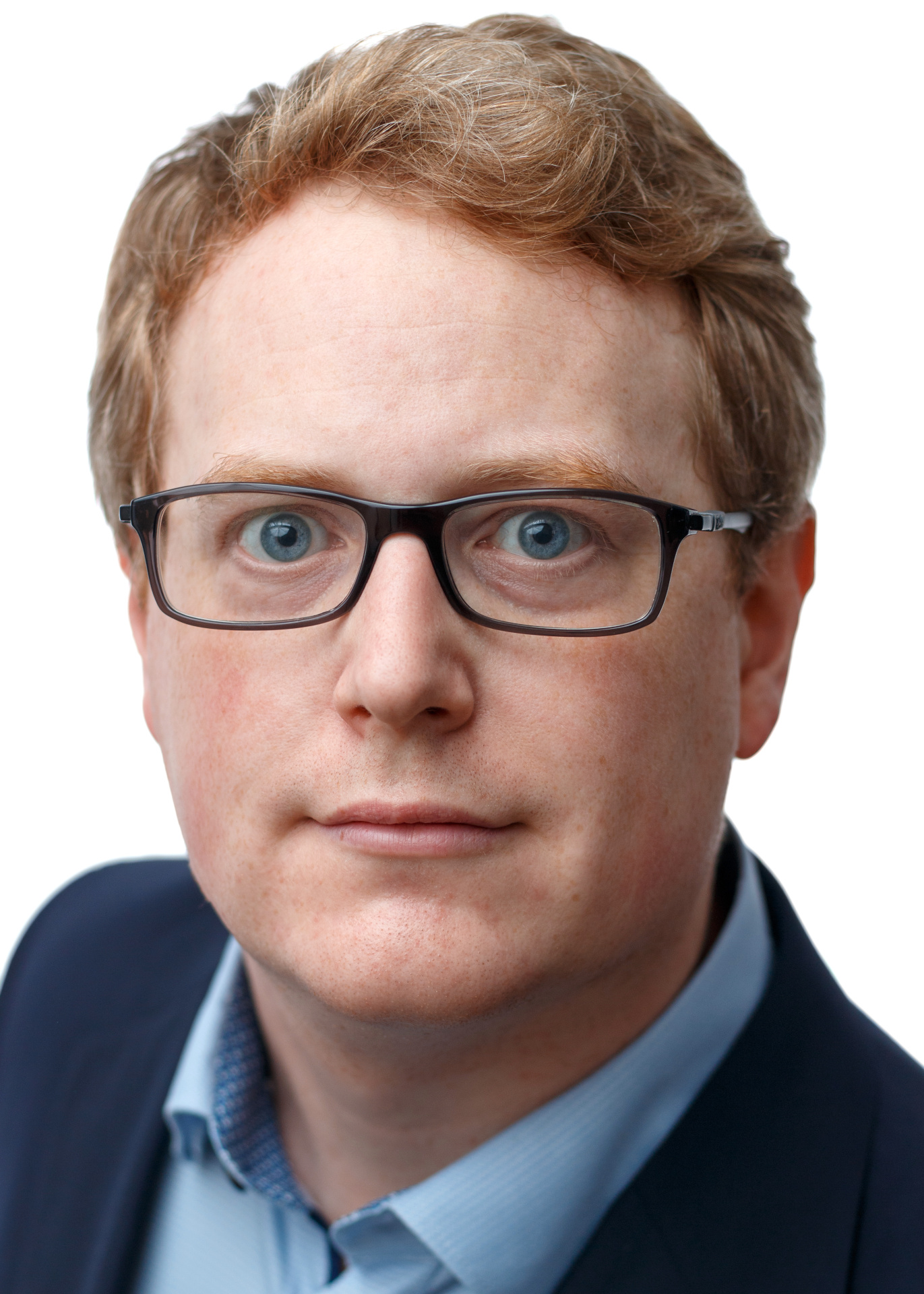 Bho Matthiesen
Bho Matthiesen
Bho Matthiesen received the Diplom-Ingenieur (M.Sc.) degree in electrical engineering from Technische Universität Dresden, Dresden, Germany, in 2012, and the Ph.D. degree (with distinction) in electrical engineering from Technische Universität Dresden in 2019. From 2008 to 2010, he was a Student Research Assistant at Technische Universtät Dresden. From 2010 to 2011, he was Research Assistant at Fraunhofer Institute for Telecommunications in Berlin, Germany. From 2012 to 2019, he was a Research Associate with the Chair of Communications Theory, Technische Universität Dresden. He is currently a research group leader and lecturer at the U Bremen Excellence Chair of Petar Popovski in the Department of Communications Engineering, University of Bremen, Germany. His research interests are in communication theory, wireless communications, and optimization theory. Dr. Matthiesen is a Member of IEEE, IEEE ComSoc, IEEE SPS, EURASIP, and VDE/ITG. He is an Exemplary Reviewer 2020 and 2021 of the IEEE Wireless Communications Letters, was an invited speaker at the 2nd 6G Wireless Summit 2020, and a tutorial presenter at IEEE VTC2020-Fall, IEEE ICC 2021 and IEEE ICASSP 2021. He served as a publication co-chair for the International Symposium on Wireless Communication Systems (ISWCS) 2021 and for the International ITG 26th Workshop on Smart Antennas and 13th Conference on Systems, Communications, and Coding (WSA & SCC 2023). He is an associate editor for the EURASIP Journal on Wireless Communications and Networking and an editorial board member for Scientific Reports (Nature Portfolio).
Israel Leyva-Mayorga
Israel Leyva-Mayorga (Member, IEEE) received the B.Sc. degree in telematics engineering and the M.Sc. degree (Hons.) in mobile computing systems from the Instituto Politécnico Nacional (IPN), Mexico, in 2012 and 2014, respectively, and the Ph.D. degree (cum laude and extraordinary prize) in telecommunications from the Universitat Politècnica de València (UPV), Spain, in 2018. He was a Visiting Researcher at the Department of Communications, UPV, in 2014, and at the Deutsche Telekom Chair of Communication Networks, Technische Universität Dresden, Germany, in 2018. He is currently an Assistant Professor at the Connectivity Section (CNT) of the Department of Electronic Systems, Aalborg University (AAU), Denmark, where he served as a Postdoctoral Researcher from January 2019 to July 2021. He is an Associate Editor for IEEE Wireless Communications Letters, a Board Member for one6G, and a representative of AAU in 6G IA. His research interests include beyond-5G, and 6G networks, satellite communications, and random and multiple access protocols.
Petar Popovski
Petar Popovski (IEEE Fellow) is a Professor at Aalborg University, where he heads the section on Connectivity and a Visiting Excellence Chair at the University of Bremen. He received his Dipl.-Ing (1997) and M. Sc. (2000) degrees in communication engineering from the University of Sts. Cyril and Methodius in Skopje and the Ph.D. degree (2005) from Aalborg University. He received an ERC Consolidator Grant (2015), the Danish Elite Researcher award (2016), IEEE Fred W. Ellersick prize (2016), IEEE Stephen O. Rice prize (2018), Technical Achievement Award from the IEEE Technical Committee on Smart Grid Communications (2019), the Danish Telecommunication Prize (2020) and Villum Investigator Grant (2021). He is currently an Editor-in-Chief of IEEEE JOURNAL ON SELECTED AREAS IN COMMUNICATIONS and Chair of the IEEE Communication Theory Technical Committee. He was a Member at Large at the Board of Governors in IEEE Communication Society, as well as the General Chair for IEEE SmartGridComm 2018 and IEEE Communication Theory Workshop 2019. His research interests are in the area of wireless communication and communication theory. He authored the book ``Wireless Connectivity: An Intuitive and Fundamental Guide'', published by Wiley in 2020.
TUT-21: 6G and Quantum Communication Networks
Thursday, 1 June 2023, 09:00-13:00
Room: M5
Abstract:
5G and Beyond networks implied the switch of paradigm from the existing store-and-forward to the future compute-and-forward. This means that computing is going to become the main pillar of future communication networks thanks to the full softwarization of the network stack, protocols and procedures. The characteristics of future generation networks predict an unprecedented rise of demand for storage and computing capacity. However, network virtualization and in general future networks suffer from intrinsic limitations imposed by classical theories. In order to overtake these limits efficiently, entanglement has been proposed as a groundbreaking resource for both communications and computing. Then, understanding all the facets and the ways of applying entanglement in communications is pivotal for researchers in science and engineering to be able to create effective classical-quantum communication networks.
Speakers:
Frank H.P. Fitzek; Holger Boche; Riccardo Bassoli; Roberto Ferrara; Janis Nötzel
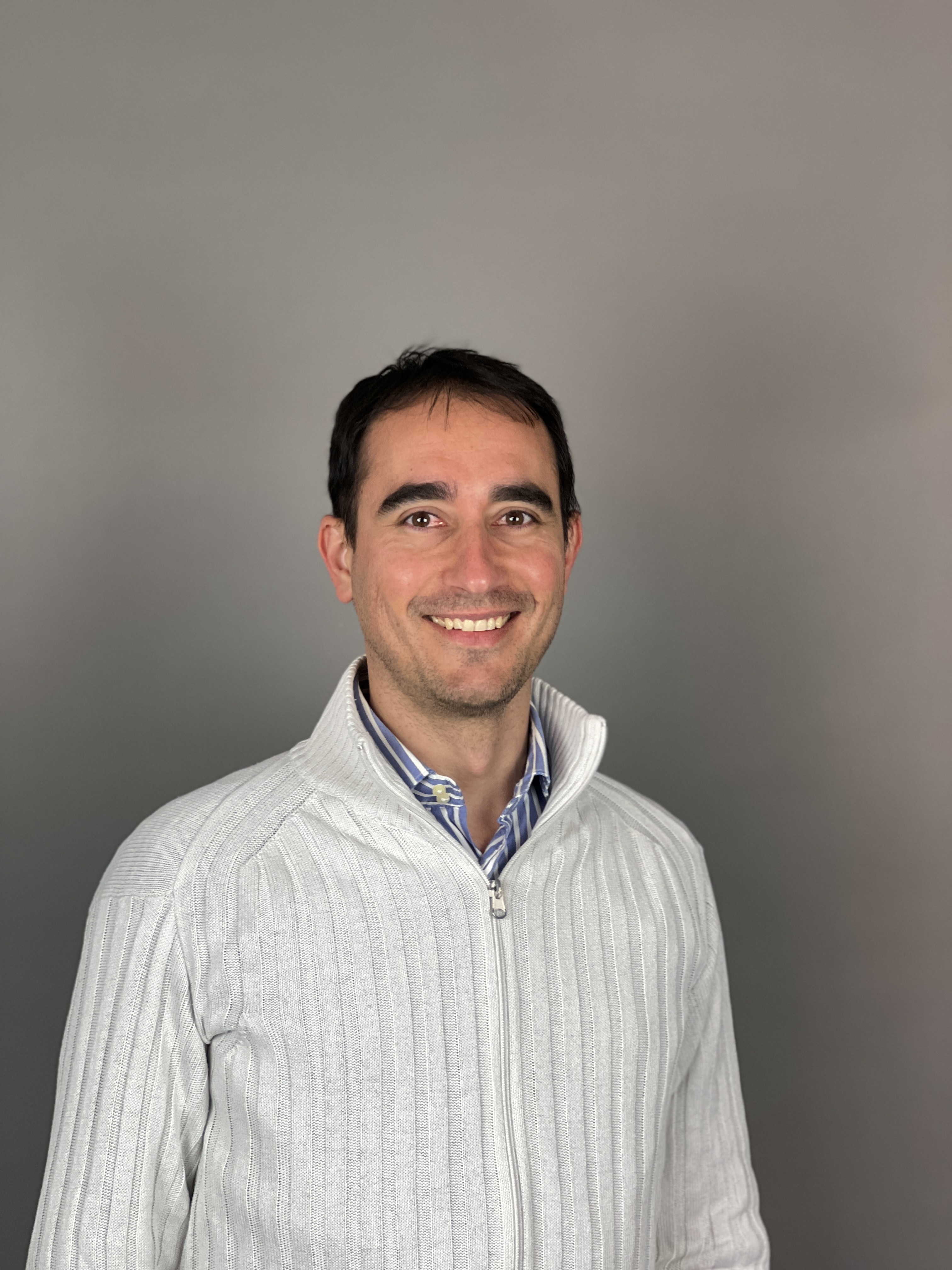 Riccardo Bassoli
Riccardo Bassoli
Riccardo Bassoli is a Juniorprofessur (US Assistant Professor, UK Lecturer) at the Deutsche Telekom Chair of Communication Networks and head of the Quantum Communication Networks research group, at the Faculty of Electrical and Computer Engineering, at Technische Universität Dresden. He is member of the Cluster of Excellence "Centre for Tactile Internet with Human-in-the-loop (CeTI)", in Dresden. He is also member of the EU Quantum Internet Alliance (QIA) and of the EU flagships for 6G Hexa-X and Hexa-X II. He is principal investigator in the 6G-life research hub of Germany. He got his Ph.D. from 5G Innovation Centre at University of Surrey (UK), in 2016. He was also a Marie Curie ESR at the Instituto de Telecomunicações (Portugal) and visiting researcher at Airbus Defence and Space (France). Between 2016 and 2019, he was postdoctoral researcher at Università di Trento (Italy). He is IEEE and ComSoc member, and part of the Glue Technologies for Space Systems Technical Panel of IEEE AESS. He is co-founder and member of the association "SIGN - Scienziati Italiani in Germania Network".
TUT-22: Near-Field Communications for 6G: Fundamentals, Challenges, Potentials, and Future Directions
Thursday, 1 June 2023, 09:00-13:00
Room: M7
Abstract:
6G networks are promising to empower emerging new applications, such as extended reality, holographic video, digital replica, etc. For realizing these visions, extremely large antenna array (ELAA) is viewed as one of the key candidate technologies. The deployment of ELAA not only means a sharp increase in the number of antennas, but also results in a fundamental change in the electromagnetic (EM) characteristics. In particular, ELAA-based communications will likely operate in the near-field region instead of the far-field region as is commonly assumed. Therefore, near-field communications will become essential for future 6G networks. In this tutorial, the near-field communication techniques for 6G will be discussed. Specifically, the fundamental difference between far-field and near-field communications will be clarified at first, where we explain the principle to determine the boundary of near-field and far-field regions for MIMO communications and RIS-aided communications. Then we investigate the near-field communication techniques that are designed to compensate for the performance loss of far-field techniques in the near-field region. Moreover, we also introduce the techniques that exploit the nature of near-field spherical wavefront for capacity enhancement and accessibility improvement. Finally, several open problems and future research directions are pointed out.
Speakers:
Linglong Dai; Haiyang Zhang; Yonina C. Eldar
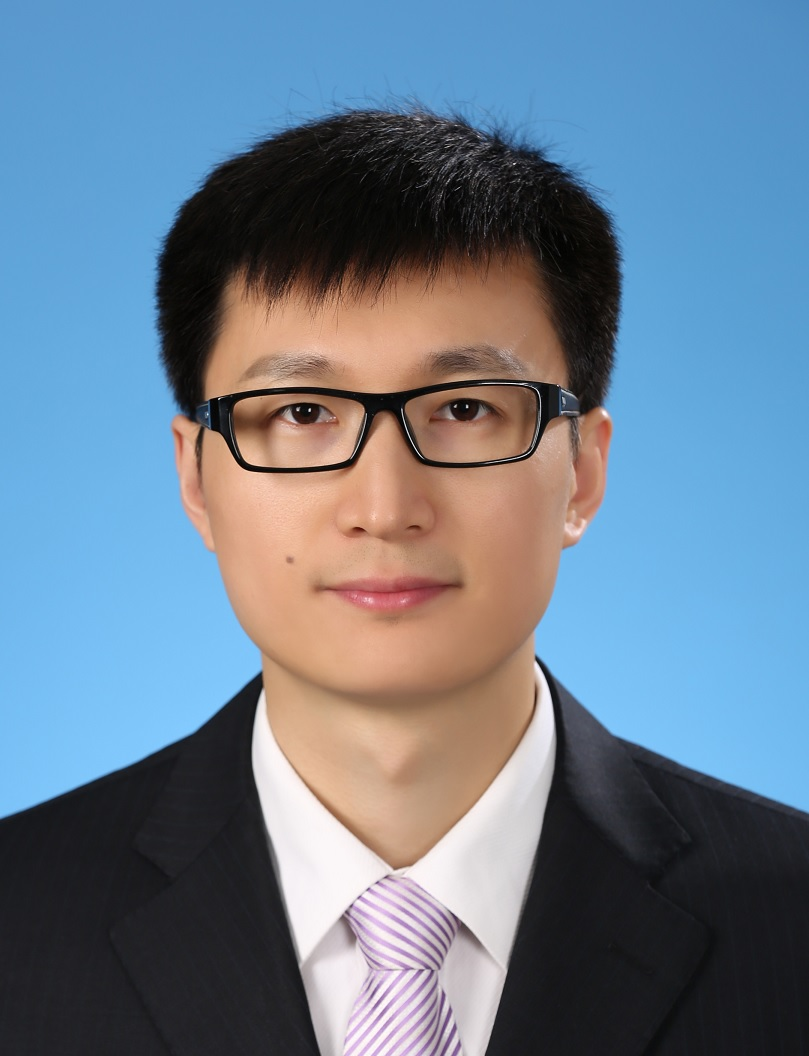 Linglong Dai (Fellow, IEEE) received the B.S. degree from Zhejiang University in 2003, the M.S. degree (with the highest honor) from the China Academy of Telecommunications Technology (CATT) in 2006, and the Ph.D. degree (with the highest honor) from Tsinghua University, Beijing, China, in 2011. From 2011 to 2013, he was a Postdoctoral Research Fellow with the Department of Electronic Engineering, Tsinghua University, where he has been an Assistant Professor from 2013 to 2016, an Associate Professor from 2016 to 2022, and a Professor since 2022. His research area is transmission theory and technology for wireless communications, with the research topics including massive MIMO, reconfigurable intelligent surface (RIS), millimeter-wave and terahertz communications, machine learning for wireless communications, and electromagnetic information theory (EIT). He has authored or co-authored over 80 IEEE journal papers and over 50 IEEE conference papers. He has received five IEEE Best Paper Awards at the IEEE ICC 2013, the IEEE ICC 2014, the IEEE ICC 2017, the IEEE VTC 2017-Fall, and the IEEE ICC 2018. He has also received the IEEE Transactions on Broadcasting Best Paper Award in 2015, the Electronics Letters Best Paper Award in 2016, the IEEE ComSoc Asia-Pacific Outstanding Young Researcher Award in 2017, the IEEE ComSoc Asia-Pacific Outstanding Paper Award in 2018, the IEEE Access Best Multimedia Award in 2020, and the IEEE Communications Society Leonard G. Abraham Prize in 2020, the IEEE ComSoc Stephen O. Rice Prize in 2022, and IEEE ICC 2022 Outstanding Demo Award. He was listed as a Highly Cited Researcher by Clarivate from 2020 to 2022. He was elevated as an IEEE Fellow in 2022.
Linglong Dai (Fellow, IEEE) received the B.S. degree from Zhejiang University in 2003, the M.S. degree (with the highest honor) from the China Academy of Telecommunications Technology (CATT) in 2006, and the Ph.D. degree (with the highest honor) from Tsinghua University, Beijing, China, in 2011. From 2011 to 2013, he was a Postdoctoral Research Fellow with the Department of Electronic Engineering, Tsinghua University, where he has been an Assistant Professor from 2013 to 2016, an Associate Professor from 2016 to 2022, and a Professor since 2022. His research area is transmission theory and technology for wireless communications, with the research topics including massive MIMO, reconfigurable intelligent surface (RIS), millimeter-wave and terahertz communications, machine learning for wireless communications, and electromagnetic information theory (EIT). He has authored or co-authored over 80 IEEE journal papers and over 50 IEEE conference papers. He has received five IEEE Best Paper Awards at the IEEE ICC 2013, the IEEE ICC 2014, the IEEE ICC 2017, the IEEE VTC 2017-Fall, and the IEEE ICC 2018. He has also received the IEEE Transactions on Broadcasting Best Paper Award in 2015, the Electronics Letters Best Paper Award in 2016, the IEEE ComSoc Asia-Pacific Outstanding Young Researcher Award in 2017, the IEEE ComSoc Asia-Pacific Outstanding Paper Award in 2018, the IEEE Access Best Multimedia Award in 2020, and the IEEE Communications Society Leonard G. Abraham Prize in 2020, the IEEE ComSoc Stephen O. Rice Prize in 2022, and IEEE ICC 2022 Outstanding Demo Award. He was listed as a Highly Cited Researcher by Clarivate from 2020 to 2022. He was elevated as an IEEE Fellow in 2022.
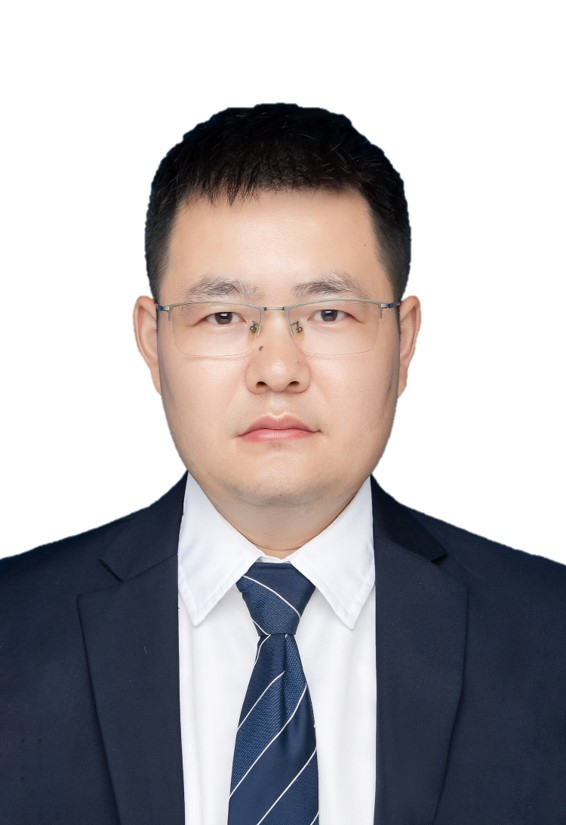 Haiyang Zhang
Haiyang Zhang
Haiyang Zhang (Member, IEEE) received the B.S. degree in communication engineering from Lanzhou Jiaotong University, Lanzhou, China, in 2009, the M.S. degree in information and communication engineering from the Nanjing University of Posts and Telecommunications, Nanjing, China, in 2012, and the Ph.D. degree in information and communication engineering from Southeast University, Nanjing, China, in 2017. He is currently a Professor with the School of Communications and Information Engineering, Nanjing University of Posts and Telecommunications. From 2017 to 2020, he was a Postdoctoral Research Fellow with the Singapore University of Technology and Design, Singapore. From 2020 to 2022, he was a Postdoctoral Research Fellow with the Weizmann Institute of Science, Israel, where he was awarded the FGS Prize for outstanding research achievements. He serves as the Co-Chair of IEEE ICC 2023 Workshop on near-field localization and communications for 6G. His currently research interests include 6G near-field MIMO communications, deep learning and sampling theory.
 Yonina C. Eldar (Fellow, IEEE) received the B.Sc. degree in Physics in 1995 and the B.Sc. degree in Electrical Engineering in 1996 both from Tel-Aviv University (TAU), Tel-Aviv, Israel, and the Ph.D. degree in Electrical Engineering and Computer Science in 2002 from the Massachusetts Institute of Technology (MIT), Cambridge. From January 2002 to July 2002 she was a Postdoctoral Fellow at the Digital Signal Processing Group at MIT. She is currently a Professor in the Department of Mathematics and Computer Science, Weizmann Institute of Science, Rechovot, Israel. She was previously a Professor in the Department of Electrical Engineering at the Technion, where she held the Edwards Chair in Engineering. She is also a Visiting Professor at MIT, a Visiting Scientist at the Broad Institute, and an Adjunct Professor at Duke University and was a Visiting Professor at Stanford. She is a member of the Israel Academy of Sciences and Humanities (elected in 2017), an IEEE Fellow, and a EURASIP Fellow.
Yonina C. Eldar (Fellow, IEEE) received the B.Sc. degree in Physics in 1995 and the B.Sc. degree in Electrical Engineering in 1996 both from Tel-Aviv University (TAU), Tel-Aviv, Israel, and the Ph.D. degree in Electrical Engineering and Computer Science in 2002 from the Massachusetts Institute of Technology (MIT), Cambridge. From January 2002 to July 2002 she was a Postdoctoral Fellow at the Digital Signal Processing Group at MIT. She is currently a Professor in the Department of Mathematics and Computer Science, Weizmann Institute of Science, Rechovot, Israel. She was previously a Professor in the Department of Electrical Engineering at the Technion, where she held the Edwards Chair in Engineering. She is also a Visiting Professor at MIT, a Visiting Scientist at the Broad Institute, and an Adjunct Professor at Duke University and was a Visiting Professor at Stanford. She is a member of the Israel Academy of Sciences and Humanities (elected in 2017), an IEEE Fellow, and a EURASIP Fellow.
TUT-23: Statistical Learning with Generative Models for Communications
Thursday, 1 June 2023, 9:00-13:00
Room: S6
Abstract:
Machine learning is gaining more and more interest in several application domains. Communications is one of those although herein it is not fully clear whether ML can bring disruptive innovation and offer improved performance w.r.t. to well established model-based approaches. This tutorial has three distinctive elements: firstly, it focuses on a timely topic, i.e., generative models for signal analysis (learning) and synthesis (generation); secondly, it highlights the pivotal role played by the estimation of the channel input/output mutual information; thirdly, it considers several communication "problems" and it illustrates solutions with generative models obtained from the formulation of optimality criterions for: a) synthetic channel and noise modeling, b) coding/decoding design in unknown channels, c) channel capacity estimation. In the above-mentioned problems, a key enabling component is the ability to estimate mutual information. This will lead us to the description of known and novel mutual information estimators. Their application will be considered to derive optimal decoding strategies with deep learning neural architectures obtained from an explainable mathematical formulation. Then, the joint design of the coding and decoding scheme aiming to achieve channel capacity will be considered. Finally, the most ambitious goal of estimating the capacity in unknown channels. This last goal rendered possible by the exploitation of cooperative methods that learn the capacity using neural mutual information estimation.
Speaker:
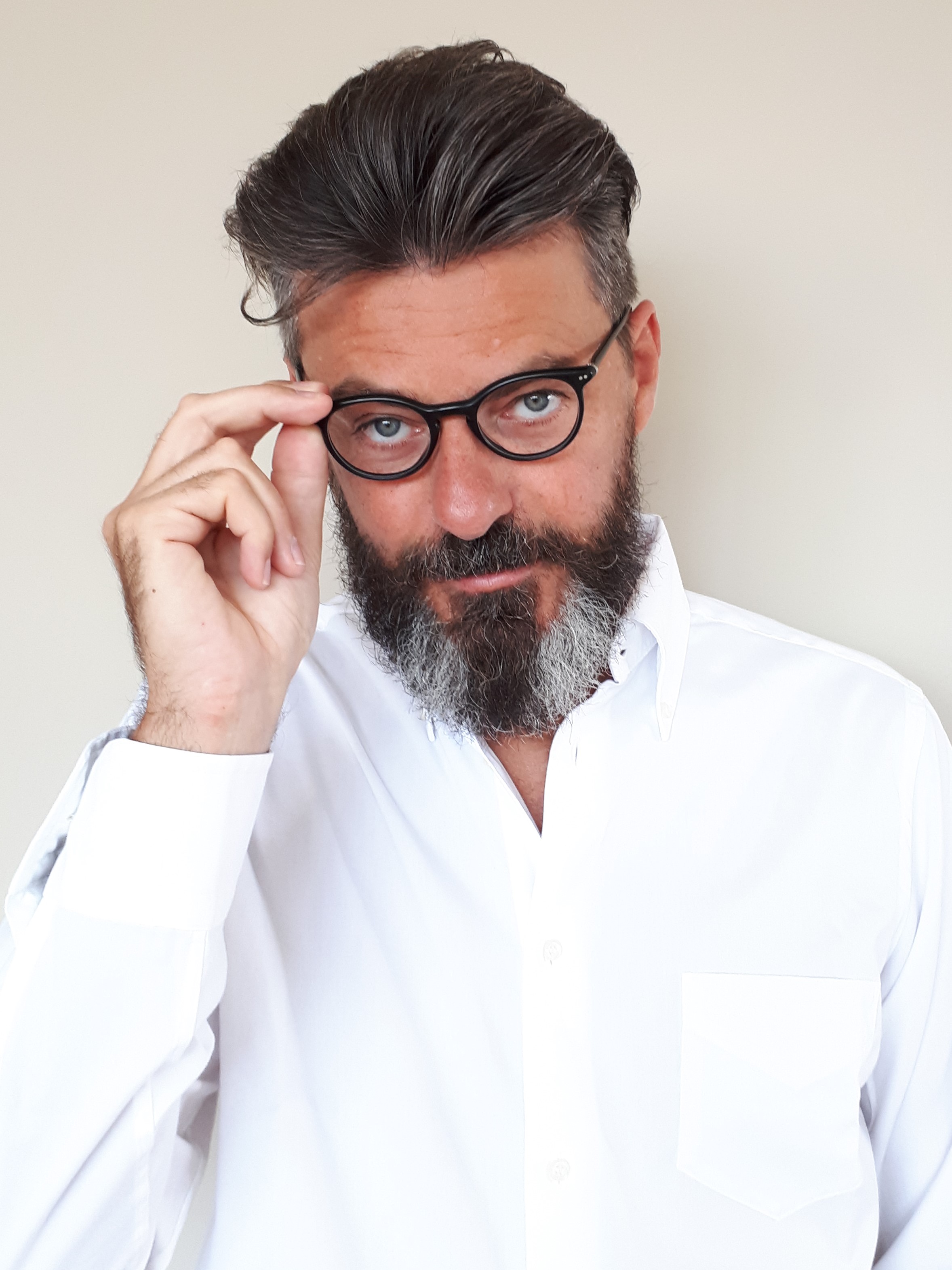 Andrea M Tonello
Andrea M Tonello
Andrea Tonello is professor of embedded communication systems at the University of Klagenfurt, Austria. He has been associate professor at the University of Udine, Italy, technical manager at Bell Labs‐Lucent Technologies, USA, and managing director of Bell Labs Italy where he was responsible for research activities on cellular technology. He is cofounder of the spin‐off company WiTiKee and has a part‐time associate professor post at the University of Udine, Italy. Dr. Tonello received the PhD from the University of Padova, Italy (2002). He was the recipient of several awards including: the Lucent Bell Labs Recognition of Excellence Award (1999), the RAENG (UK) Distinguished Visiting Fellowship (2010), the IEEE Vehicular Technology Society Distinguished Lecturer Award (2011‐15), the IEEE Communications Society (ComSoc) Distinguished Lecturer Award (2018‐19), the IEEE ComSoc TC‐PLC Interdisciplinary and Research Award (2019), the IEEE ComSoc TC‐PLC Outstanding Service Award (2019), and the Chair of Excellence from UC3M (2019‐20). He also received 10 best paper awards. He was/is associate editor of IEEE TVT, IEEE TCOM, IEEE ACCESS, IET Smart Grid, Elsevier Journal of Energy and Artificial Intelligence. He was the chair of the IEEE ComSoc Technical Committee on PLC (2014‐18), and the director for industry outreach in the IEEE ComSoc board of governors (2020‐21). He serves as the chair of the IEEE ComSoc Technical Committee on Smart Grid Communications (2020‐TD).
TUT-24: Multicarrier-Division Duplex: A Duplexing Technique for Shift from 5G to 6G
Thursday, 1 June 2023, 14:30-18:00
Room: G
Abstract:
Our research on multicarrier-division duplex (MDD) has envisaged it a most promising duplexing candidate for shifting wireless networks from 5G to 6G. Benefiting from its flexible time-frequency resource usage and efficient management of self-interference and cross-layer interference, MDD exhibits the efficiency and reliability in high-mobility communications and dense (access-point) AP networks. MDD can be seamlessly incorporated with other advanced techniques, such as non-orthogonal multiple access (NOMA) and orthogonal time frequency space (OTFS), thereby providing high-efficiency and robust performance for various types of communications systems, including massive machine type communications, ultra-reliable and low-latency communications and the ultra-high-speed enhanced mobile broadband communications systems. This tutorial provides a comprehensive introduction to the state-of-the-art of MDD based on our research results. It makes an in-depth comparison between MDD and TDD, FDD and in-band full duplex, to demonstrate its advantages and reveal its potential for the design of future wireless systems. The fundamentals of MDD, channel estimation and self-interference cancellation, and some potential applications of MDD in, such as, massive MIMO, mmWave, cell-free (CF) dense networks and high-mobility wireless communications, will be addressed. Furthermore, it explains how graph neural networks can be employed to implement resource allocation in dense MDD-CF networks, and demonstrate its scalability to optimize the CF networks of various size.:
Speakers:
Lie-Liang Yang
Lie-Liang Yang is the professor of Wireless Communications in the School of Electronics and Computer Science at the University of Southampton, UK. He received his MEng and PhD degrees in communications and electronics from Northern (Beijing) Jiaotong University, Beijing, China in 1991 and 1997, respectively, and his BEng degree in communications engineering from Shanghai TieDao University, Shanghai, China in 1988. He has research interest in wireless communications, wireless networks and signal processing for wireless communications, as well as molecular communications and nano-networks. On these research topics, he has graduated 30+ PhD students and currently supervises 8 PhD students, and has also supervised 140+ master projects. He has published 400+ research papers in journals and conference proceedings, authored/co-authored three books and also published several book chapters. The details about his research publications can be found at https://www.ecs.soton.ac.uk/people/llyang. He is a fellow of both the IEEE and the IET, and was a distinguished lecturer of the IEEE VTS. He served as an associate editor to various journals, and is currently a senior editor to the IEEE Access and a subject editor to the Electronics Letters. He also acted different roles for organization of conferences.
Bohan Li
Bohan Li received his PhD degree from the University of Southampton in 2022. Currently, he works as a research fellow at the University of Leicester, UK. In recent years, his research has been mainly focused on the multicarrier-division duplex based wireless communications . He also has research interest in various techniques for the future generations of wireless systems, including full duplex communications, smart wireless transceivers, mmWave massive MIMO, cell-free massive MIMO, deep reinforcement learning and graph neural networks for optimization of wireless systems.
TUT-25: EMF Exposure-aware Analysis and Optimization of Wireless Networks: A Multidisciplinary Approach
Thursday, 1 June 2023, 14:30-18:00
Room: I
Abstract:
Optimizing cellular networks is essential for reasons as varied as ensuring a good signal quality, limiting the energy consumption or the level of public exposure to electromagnetic fields (EMF) or contrariwise guaranteeing that enough energy is harvested in an IoT context. Upcoming network generations will make use of novel technologies such as massive Multiple-Input Multiple-Output (mMIMO), redesigned deployments and higher frequency bands. This not only raises new questions about EMF exposure, but also opens new research directions and brings new challenges to network providers and regulators, whose objective is to maximize the coverage of a network while ensuring compliance with exposure standards. This tutorial provides multiple frameworks to evaluate the network performance in terms of joint EMF exposure and Signal-to-interference-and-noise ratio (SINR) distribution. Numerous network topologies are studied, as well as the integration of massive MIMO and mmWave aspects. Ray-tracing and stochastic geometry models are employed to perform this joint analysis. This tutorial then proposes methods going beyond traditional performance analysis. As an example, spatial reconstruction methods and EMF exposure forecasting are introduced based on experimental data. Techniques using artificial neural networks are discussed as well. Finally, optimization problems yielding insights on efficient network deployments are presented.
Speakers:
Quentin Gontier; Claude Oestges; Shanshan Wang; Charles Wiame
Quentin Gontier
Quentin Gontier was born in Brussels in 1997. He received the B.S. and M.S. degrees in physics engineering from the Université Libre de Bruxelles, Belgium, in 2020. Since 2020, he is a Ph.D. candidate in the Wireless Communications Group of the Université Libre de Bruxelles and in Brussels Environnement, Belgium. His research interests include stochastic geometry and ray-tracing modeling applied to exposure assessment and coverage analysis.
Claude Oestges
Claude Oestges received the Electrical Engineering degree and the PhD degree in Applied Science from the Université catholique de Louvain (UCLouvain, Louvain-la-Neuve, Belgium), in 1996 and 2000, respectively. From January to December 2001, he joined, as a post-doctoral scholar, the Smart Antennas Research Group (Information Systems Laboratory) of Stanford University (California, USA). Claude Oestges is currently Full Professor at UCLouvain. His research interests cover wireless and satellite communications, with a focus on the propagation channel and its impact on system performance. Claude Oestges is a Fellow of the IEEE. He previously served in the Board of Directors of the European Association on Antennas and Propagation (EurAAP), and as Associate Editor for the IEEE Transactions on Antennas and Propagation and on Vehicular Technology. He was the Chair of COST Action CA15104 "Inclusive Radio Communication Networks for 5G and Beyond" , known as IRACON. He is the author or co-author of four books and more than 200 papers in international journals and conference proceedings. He was the recipient of the IET Marconi Premium Award in 2001 and of the IEEE Vehicular Technology Society Neal Shepherd Award in 2004 and 2013.
Shanshan Wang
Shanshan WANG was born in Nanjing, China, in 1991. She received the B.Sc. degree in communications engineering from Soochow University, Suzhou, China, in 2013, the M.Sc. degree (Hons.) in wireless communication and signal processing from the University of Bristol, Bristol, U.K., in 2014, and the Ph.D. degree from Laboratory of Signals and Systems, Paris-Saclay University, Paris, France in 2019. From 2015 to 2018, she was with the French National Center for Scientific Research (CNRS), Paris, as an Early Stage Researcher of the European-Funded Project H2020 ETN-5Gwireless. Her research interests include stochastic geometry, EMF exposure, and machine learning for applications in wireless communications. She is currently a postdoctotal researcher in Telecom Paris, IP Paris, France. She was a recipient of the 2018 INISCOM Best Paper Award. She served as the guest editor of the MDPI Sensors in 2022.
Charles Wiame
Charles Wiame (Student member, IEEE) obtained the M.Sc. degree in electrical engineering from UCLouvain, Belgium, in 2017. He is currently teaching assistant and Ph.D student at UCLouvain, working under the supervision of Prof. L. Vandendorpe and Prof. C. Oestges. In 2022, he was a visitor at the Kungliga Tekniska högskolan, Stockholm, Sweden. His current research interests include the joint analysis of coverage and EMF exposure in wireless networks, user-centric cell-free systems and stochastic geometry.
TUT-26: Toward a New Vision of Space Communications: Design Philosophy and Technologies
Thursday, 1 June 2023, 14:30-18:00
Room: L
Abstract:
Space communication technology has reached a turning point. Consolidated concepts concerning the role of satellites, dated since almost 80 years, are currently under discussion and redefinition. For this reason, many authors are now speaking about “New Space” or “Space 2.0”, announcing a revolution quite similar to that occurred to the Internet and the Web. In this tutorial, articulated into three sections, the future directions of Space communication technology will be highlighted, including: software-defined design of intelligent and sustainable Space network infrastructures, 3D networks, terabit backbones in the Space and new frontiers of quantum communications and digital twins for non-terrestrial applications.
Speakers:
Claudio Sacchi; Ernestina Cianca; Riccardo Bassoli
Claudio Sacchi
Claudio Sacchi was born in Genoa (Italy) in 1965. He received the “Laurea” degree in Electronic Engineering and the Ph.D. in Space Science and Engineering from the University of Genoa, Italy, in 1992 and 2003, respectively. From 1996 to 2002, he was a Research Cooperator with the Department of Biophysical and Electronic Engineering (DIBE), University of Genoa, and with the National Italian Consortium in Telecommunications (CNIT), managing project activities in the field of multimedia surveillance systems and satellite communications. In August 2002, he joined the Department of Information Engineering and Computer Science (DISI), University of Trento, Italy, as an Assistant Professor. He was promoted to Associate Professor in December 2020. He has authored and co-authored more than 140 papers published in international journals and conferences. He is a member of the IEEE ComSoc, IEEE BTS, IEEE VT, and IEEE AESS. . Since 2019, he has been coordinating and chairing the IEEE AESS technical panel: “Glue Technologies for Space Systems” which was awarded by AESS as “Outstanding Panel of the Year” in 2020 and 2021. Since January 1st, 2023, Claudio Sacchi has got a double affiliation with UNM as Research Professor. His main research interests are related to emerging satellite and aerospace communications and broadband mobile communications in 5G and 6G systems.
Ernestina Cianca
She is Associate Professor at the Dept. of Electronic Engineering, University of Rome Tor Vergata; Director of the M.Sc. on “Engineering and International Space Law in Communication, Navigation and Sensing via satellite; vice-Director of the Interdepartmental research center CTIF (Center for TeleInFrastructures), whose focus is on interdisciplinary research and in particular the use of ICT for vertical applications (biomedicine, health, food, industrial, energy, cultural heritage, economics, law). She has coordinated several projects with of the Italian Space Agency, European Space Agency and participated to European and national projects. Her research activity is focused on wireless access technologies and in particular waveforms design, optimization and performance analysis of radio interfaces both for terrestrial and satellite communications. An important part of her research has focused on the use of EHF bands (Q/V band, W band) for satellite communications and on the integration of satellite/terrestrial/HAP (High altitude Platforms) systems. Currently her main research interests are in the use of radio-frequency signals (opportunistic signals) for sensing and localization. She is author of more than 150 papers published on international journal and conference proceedings.
Riccardo Bassoli is a Juniorprofessur (US Assistant Professor, UK Lecturer) at the Deutsche Telekom Chair of Communication Networks and head of the Quantum Communication Networks research group, at the Faculty of Electrical and Computer Engineering, at Technische Universität Dresden. He is member of the Cluster of Excellence "Centre for Tactile Internet with Human-in-the-loop (CeTI)", in Dresden. He is also member of the EU Quantum Internet Alliance (QIA) and of the EU flagships for 6G Hexa-X and Hexa-X II. He is principal investigator in the 6G-life research hub of Germany. He got his Ph.D. from 5G Innovation Centre at University of Surrey (UK), in 2016. He was also a Marie Curie ESR at the Instituto de Telecomunicações (Portugal) and visiting researcher at Airbus Defence and Space (France). Between 2016 and 2019, he was postdoctoral researcher at Università di Trento (Italy). He is IEEE and ComSoc member, and part of the Glue Technologies for Space Systems Technical Panel of IEEE AESS. He is co-founder and member of the association "SIGN - Scienziati Italiani in Germania Network".
TUT-27: Machine Learning Over-the-Air: Two Tales of Interference - CANCELED
Thursday, 1 June 2023, 14:30-18:00
Room: M8
Abstract:
This tutorial aims to present the current research efforts on the development of implementing machine learning algorithms in wireless systems. Specifically, we provide a comprehensive coverage of a distributed learning paradigm based on over-the-air computing, a.k.a. over-the-air machine learning (OTA-ML). We will present the general architecture, model training algorithm, and an analytical framework that quantifies the convergence rate of OTA-ML. The analysis takes into account key effects from wireless transmissions, such as channel fading and interference, on the convergence performance and discloses how interference is deteriorating the model training process. Then, we elaborate on several improvements to the OTA-ML from different aspects. Particularly, we introduce model pruning schemes that reduce the computation and communication overheads for OTA-ML. We also discuss the system enhancements from an algorithmic perspective, e.g., adopting the momentum-based approach and/or adaptive optimizations to accelerate the model training. Finally, we will elaborate on the analysis of generalization error of the statistical models trained by OTA-ML, which shows that wireless interference has the positive potential of improving the generalization capability. A few signal processing methods that exploit interference for a better generalization will also be discussed. We will conclude this tutorial by shedding light on future works.
Speakers:
Howard H. Yang
Howard H. Yang received the Ph.D. degree in Electrical Engineering from the Singapore University of Technology and Design, Singapore, in 2017. Currently, he is an assistant professor with the ZJU-UIUC Institute, Haining, China. He is also an adjunct assistant professor with the Electrical and Computer Engineering Department, University of Illinois at Urbana-Champaign. His background also features appointments at the University of Texas at Austin and Princeton University. He currently serves as an Editor for IEEE Transactions on Wireless Communications. His research interests cover various aspects of wireless communications, networking, and signal processing.
Prof. Tony Q. S. Quek
Prof. Tony Q. S. Quek (IEEE Fellow) received the B.E. and M.E. degrees in Electrical and Electronics Engineering from Tokyo Institute of Technology, Tokyo, Japan, respectively. At Massachusetts Institute of Technology (MIT), Cambridge, MA, he earned the Ph.D. in Electrical Engineering and Computer Science. Currently, he is a tenured Professor with the Singapore University of Technology and Design (SUTD). He is also the Director of the Future Communications R&D Programme, the Head of ISTD Pillar, and the Deputy Director of the SUTD-ZJU IDEA, the 2020 Nokia Visiting Professor, and from 2016 to 2020, the Clarivate Analytics Highly Cited Researcher. His current research topics include wireless communications and networking, security, big data processing, network intelligence, and Internet of Things.
TUT-28: Channel Coding and Decoding for Beyond 5G Communications
Thursday, 1 June 2023, 14:30-18:00
Room: S7
Abstract:
Designing and optimizing short block length codes have been recently attracted to being implemented on memory or power-constrained devices. Existing rate-compatible (RC) codes are mainly constructed using puncturing and extending, which are shown to be sub-optimal for short block lengths. Designing RC codes for short messages that support bit-level granularity of the codeword size and maintain a large minimum Hamming weight at various rates is still open. In this tutorial, we compare the main contender channel codes for URLLC, with the aim to achieve a favourable trade-off between latency and reliability. We review existing short channel codes and compare them in terms of rate efficiency at the reliability of interest. We show that existing candidate channel codes for short packet communications still show a considerable gap to the normal approximation benchmark, therefore there is still room for further improvement. We review novel universal channel coding techniques, and in particular our recently proposed primitive rateless codes, and highlight their advantages. We also review our recent innovations in the design of universal ordered statistics decoding (OSD) and compare them with existing approaches like GRAND in terms of complexity and reliability performance. Finally, we shed light on future research directions in this area.
Speakers:
Mahyar Shirvanimoghaddam; Chentao Yue; Yonghui Li
Mahyar Shirvanimoghaddam
Mahyar Shirvanimoghaddam (Senior Member, IEEE) received the B.Sc. degree (Hons.) from The University of Tehran, Iran, in 2008, the M.Sc. degree (Hons.) from the Sharif University of Technology, Iran, in 2010, and the Ph.D. degree from The University of Sydney, Australia, in 2015, all in electrical engineering. He is currently a Senior Lecturer with the Centre for IoT and Telecommunications, The University of Sydney. His research interests include coding and information theory, rateless coding, communication strategies for the Internet of Things, and information-theoretic approaches to machine learning. He is a fellow of the Higher Education Academy. He was selected as one of the Top 50 Young Scientists in the World by the World Economic Forum in 2018 for his contribution to the Fourth Industrial Revolution. He received the Best Paper Award for the 2017 IEEE PIMRC, the 2020 Australian Award for University Teaching, and USYD VC's excellence award for outstanding teaching and research. He has served as the Guest Editor for the Journal of Entropy, Transactions on Emerging Telecommunications Technologies, and IEEE Journal of Selected Areas in Information Theory.
Chentao Yue
Chentao Yue received the bachelor's degree in information engineering (Honour Program) from Southeast University, China, in July 2017, and the Ph.D. degree in electrical engineering from The University of Sydney, Australia, in May 2021. He is currently a postdoctoral research associate at the School of Electrical and Information Engineering, the University of Sydney. His research interests include error control coding, information theory, multiple access techniques, and the Internet of Things. He is the recipient of the Postgraduate Scholarship in Wireless Engineering at Centre of Excellence in Telecommunications, the University of Sydney.
TUT-29: Delay-Doppler Domain Communications and Sensing
Thursday, 1 June 2023, 14:30-18:00
Room: S8
Abstract:
Future wireless networks are envisioned to support ubiquitous connectivity to a wide range of emerging applications operating in hostile environments, spanning from autonomous cars to unmanned aerial/underwater vehicles (UAV/UUV), and low-earth-orbit (LEO) satellites, etc. This requires novel wireless technology to provide highly reliable data transmission and highly accurate sensing simultaneously. However, the strong multipath, high delay and Doppler features in those hostile environments can impose great challenges for reliable wireless communications and accurate sensing. Consequently, the conventional orthogonal frequency division multiplexing (OFDM) modulation may fail due to the high dynamical channel fluctuations and complex sensing scenario. The recently proposed orthogonal time frequency space (OTFS) modulation has provided a fundamentally different perspective of waveform design in the delay-Doppler (DD) domain in contrast to the conventional time-frequency (TF) domain designs. The DD domain communications and sensing have shown promising performance over various channels thanks to the intrinsic connections between the two functionalities in the DD domain and its advantages have been widely evident from both academic and industry perspectives. This tutorial aims to provide a comprehensive understanding of the DD domain communications and sensing with specific focuses on its fundamentals, advanced designs, performance analysis, and applications.
Speakers:
Weijie Yuan; Zhiqiang Wei; Shuangyang Li
Weijie Yuan
Weijie Yuan received the B.E. degree from the Beijing Institute of Technology, China, in 2013, and the Ph.D. degree from the University of Technology Sydney, Australia, in 2019. From 2019 to 2021, he was a Research Associate with the University of New South Wales. He is currently an Assistant Professor with the Department of Electrical and Electronic Engineering, Southern University of Science and Technology, Shenzhen, China. Dr. Yuan currently serves as an Associate Editor for the IEEE Transactions on Green Communications and Networking, an Editor for the IEEE Communications Letters, an Associate Editor as well as an Award Committee Member for the EURASIP Journal on Advances in Signal Processing. He has led the guest editorial teams for three special issues in IEEE Communications Magazine, IEEE Transactions on Green Communications and Networking, and China Communications. He was an Organizer/the Chair of several workshops, special sessions, and tutorials on orthogonal time frequency space (OTFS) and integrated sensing and communication (ISAC) in flagship IEEE and ACM conferences, including IEEE ICC, IEEE/CIC ICCC, IEEE SPAWC, IEEE VTC, IEEE WCNC, IEEE ICASSP, and ACM MobiCom. He is the Founding Chair of the IEEE ComSoc Special Interest Group on OTFS (OTFS-SIG). He was listed in the World's Top 2\% Scientists by Stanford University for citation impact in 2022. He was a recipient of the Best Ph.D. Thesis Award from the Chinese Institute of Electronics, an Exemplary Reviewer Award from IEEE Transactions on Communications and IEEE Wireless Communications Letters, and a Best Editor Award from IEEE Communications Letters.
Zhiqiang Wei (Member, IEEE) received the B.E. degree in information engineering from Northwestern Polytechnical University (NPU), Xi'an, China, in 2012, and the Ph.D. degree in electrical engineering and telecommunications from the University of New South Wales (UNSW), Sydney, Australia, in 2019. From 2019 to 2021, he was a Postdoctoral Research Fellow with UNSW. From 2021-2022, he was a Humboldt Postdoctoral Research Fellow with the Institute for Digital Communications, Friedrich-Alexander University Erlangen-Nuremberg (FAU), Erlangen, Germany. He is currently a Professor with the School of Mathematics and Statistics, Xi'an Jiaotong University, Xi'an, China. He received the Best Paper Awards at the IEEE International Conference on Communications (ICC), 2018. He is the founding co-chair (publications) of the IEEE ComSoc special interest groupon OTFS (OTFS-SIG). He has been serving as the TPC Co-Chair of the IEEE ICC 2021 Workshop on OTFS, the IEEE ICC 2022 Workshop on OTFS, and IEEE International Conference on Communications in China (ICCC) 2021 Workshop on OTFS. He was recognized as an Exemplary Reviewer of IEEE Transactions on Communications during 2017-2020 and IEEE Transactions on Wireless Communications in 2017 and 2018.
Shuangyang Li
Shuangyang Li (Member, IEEE) received the B.S., M.S., and Ph.D. degrees from Xidian University, China, in 2013, 2016, and 2021, respectively. He received his second Ph.D. degree from the University of New South Wales (UNSW), Australia, in 2022. He is now a research associate at the University of Western Australia (UWA). He was the organizer/chair for several workshops and tutorials on related topics of orthogonal time frequency space (OTFS) in IEEE flagship conferences, including IEEE ICC, IEEE WCNC, IEEE VTC, and IEEE ICCC. He was also the co-author of the IEEE ComSoc Best Readings on OTFS and Delay Doppler Signal Processing. He has regularly served as a reviewer for various IEEE journals, as well as a TPC member for IEEE flagship conferences. He was a recipient of the 2021 student travel grant of IEEE International Conference on Communications (ICC) and an exemplary reviewer for IEEE Communication Letters 2022. He is a recipient of the Marie Skłodowska-Curie Actions (MSCA) fellowship 2022. He is also a founding member and currently the secretary of the special interest group (SIG) on OTFS. His research interests include signal processing, channel coding, and their applications to communication systems, with a specific focus on waveform designs.
TUT-30: Semantic Wireless Communications: Joint Communication and Computation Perspective
Thursday, 1 June 2023, 14:30-18:00
Room: S9
Abstract:
Future wireless communication requires high transmission capacity and massive connection for emerging applications such as autonomous driving, and Internet of everything (IoE). In particular, in human-computer interaction scenarios, humans may simultaneously control multiple IoE devices using speech or three-dimensional image command, thus making the communication pervasive in a small-range wireless network, which poses critical challenges to traditional communications. In this context, intelligent and semantic communications, which allow the meaning of the data (behind digital bits) to be extracted and exploited during communication, have been proposed. Different from traditional communications, semantic communications have many potential advantages. For example, it can allow devices to only transmit small amounts of semantic information based on the environment knowledge, thus increasing the system efficiency and accuracy especially for bandwidth-constrained and low signal-to-noise ratio scenarios. This motivates the development of intelligent and semantic communications using advanced signal processing. However, there are still many basic problems that have not been well investigated in semantic wireless communications.
Speakers: Zhaohui Yang, Kaibin Huang, Mingzhe Chen, Yang Yang
Zhaohui Yang
Kaibin Huang
Kaibin Huang is a Professor and an Associate Head at the Dept. of Electrical and Electronic Engineering, The University of Hong Kong, Hong Kong. He received the IEEE Communication Society's 2021 Best Survey Paper, 2019 Best Tutorial Paper, 2019 Asia Pacific Outstanding Paper, 2015 Asia-Pacific Best Paper Award, and the best paper awards at IEEE GLOBECOM 2006 and IEEE/CIC ICCC 2018. He received the Outstanding Teaching Award from Yonsei University, South Korea, in 2011. He has been named as a Highly Cited Researcher by the Clarivate Analytics in 2019-2022 and awarded a Research Fellowship by Hong Kong Research Grants Council. He served as the Lead Chair for the Wireless Communications Symposium of IEEE Globecom 2017 and the Communication Theory Symposium of IEEE GLOBECOM 2014, and the TPC Co-chair for IEEE PIMRC 2017 and IEEE CTW 2023 and 2013. He is also an Executive Editor of IEEE TRANSACTIONS ON WIRELESS COMMUNICATIONS, an Associate Editor ofIEEE JOURNAL ON SELECTED AREAS IN COMMUNICATIONS, and an Area Editor for IEEE TRANSACTIONS ON GREEN COMMUNICATIONS AND NETWORKING. He is a Fellow of IEEE and also a Distinguished Lecturer of the IEEE Communications Society and the IEEE Vehicular Technology Society.
Mingzhe Chen
Mingzhe Chen is currently an Assistant Professor with the Department of Electrical and Computer Engineering and Institute of Data Science and Computing at University of Miami. His research interests include federated learning, reinforcement learning, virtual reality, unmanned aerial vehicles, and Internet of Things. He has received from the IEEE Communication Society two paper awards including the 2021 Young Author Best Paper Award and the 2022 Fred W. Ellersick Prize Award, and three conference best paper awards at IEEE ICC in 2020, IEEE GLOBECOM in 2020, and IEEE WCNC in 2021. He currently serves as an Associate Editor of IEEE Wireless Communications Letters, IEEE Transactions on Green Communications and Networking, and IEEE Transactions on Machine Leaming in Communications and Networking. Previously, he guest edited a special issue on Distributed Learning over Wireless Edge Networks for IEEE Journal on Selected Areas in Communications (ISAC).
Yang Yang
Yang Yang is currently an Associate Professor with the School of Information and Communication Engineering, Beijing University of Posts and Telecommunications (BUPT), Beijing, China. He is a Review Editor for the Frontiers in Communications and Networks Journal. He received the B.S. degree in information engineering from School of Communication, Xidian University, Xian, China, in June 2013, and the Ph.D degree in Information and Communication Engineering from School oflnformation and Communication Engineering, Beijing University of Posts and Telecommunications (BUPT), Beijing, China. His research interests include semantic communications, visible light communication and localization. He was a recipient of the IEEE Wireless Communications and Networking Conference (WCNC) 2021 Best Paper Award. He was an Exemplary Reviewer of the IEEE Communications Letters in 2016.
TUT-31: Digital Twins for 6G Communications and Networking
Thursday, 1 June 2023, 14:30-18:00
Room: M5
Abstract:
6G has ambitious KPIs that are defined to satisfy the requirements of its driving applications such as connected robotics and autonomous systems, immersive experience of augmented reality (AR)/virtual reality (VR)/mixed reality (MR), and blockchain and trust technologies. 6G KPIs and driving applications enable a comprehensive digital representation of the physical world, along with the creation and the support for real-time interaction. In this environment, the cyber and cyber-physical worlds are connected, and digital twins (DTs) of various objects can be created. DT is a real-time evolving digital duplicate of a physical object or even a process that contains all its history. DT is enabled by massive real-time multi-source data collection and its analysis. Therefore, on a larger scale we can say that it is a crossing point of 6G and AI. While 6G is considered as an enabler of DT, we believe that DT can be a facilitator for integrating AI and 6G, towards the desired KPIs. The wide and universal potential applications of DT, ranging from aerospace to Industry 4.0, and its high communication requirements will make it the killer application of 6G.
Speakers: Hamed Ahmadi, Berk Canberk, Trung Q. Duong
Dr. Hamed Ahmadi
Dr. Hamed Ahmadi is a Senior Lecturer (Associate Professor) in the school of Physics, Engineering and Technology at University of York, UK. His current research interests include Digital twins of networks; design, analysis, and optimization of wireless communications network; applications of machine learning in wireless networks; airborne networks; Internet-of-Things and self-organizing networks. He is a member of the editorial board of IEEE Communications Standards magazine, IEEE Systems, IEEE Access, and Springer Wireless Networks. He is a senior member of IEEE, Fellow of UK Higher Education Academy, and Networks working group chair and a management committee member of COST Action CA20120 (INTERACT). He received his PhD Degree in Electrical and Computer Engineering from the National University of Singapore.
Prof. Berk Canberk
Prof. Berk Canberk is a Professor in the School of Computing, Engineering and The Built Environment at Edinburgh Napier University, where he leads interdisciplinary research and initiatives in AI-enabled Digital Twins, IoT Communication, and Smart Wireless Networks. He is an IEEE Senior Member, and he acts as an active Associate Editor at several world-leading academic journals such as IEEE Transactions on Vehicular Technology (Scopus Q1 Quartile) since 2016, Elsevier Computer Networks Journal (Scopus Q1 Quartile) since 2013, Elsevier Communication Networks Journal (Scopus Q1 Quartile) since 2017, and IEEE Communications Letters (Scopus Q1 Quartile) between 2017-2020. He’s actively involved in several conferences as TPC chair and Organizing Committee Member. In his research group named Broadband Communication and Network Automation Research Group (BCRG), he leads the research activities in highly interdisciplinary fields, actively supervising 5 PhD and 2 MSc students. So far, he has supervised 16 MSc students, and 5 PhD students who are now all tenure-track professors. He received his PhD in Computer Science from Istanbul Technical University (ITU) Turkey in 2011, his MSc in Telecommunications Engineering from the Chalmers University of Technology Sweden in 2005, and his BSc in Electrical Engineering from ITU in 2003. He’s been an Adjunct Professor within the Department of Electrical and Computer Engineering at Northeastern University USA since 2017, and Adjunct Faculty within the Department of Artificial Intelligence and Data Engineering at Istanbul Technical University (ITU) since 2022. He was an Associate Professor at Department of Computer Engineering at ITU between 2016-2021, and full Professor between 2021-2022. He has been involved with several industrial research activities with leading technology companies all over the world, including research scholarship program funding with Google Deepmind, Turkcell, Turkish Telekom, Uniper Energy Germany.
Prof. Trung Q. Duong
Prof. Trung Q. Duong is a Chair Professor in Telecommunications at Queen’s University Belfast (QUB), UK and a Research Chair of the Royal Academy of Engineering. His current research focuses on joint optimal design for communications and computing, digital twin networks, integrated satellite and terrestrial networks, quantum machine learning for dynamic radio resource allocation in wireless networks, real-time optimisation for unmanned aerial vehicles (UAV), semantic communications. He has established a strong record in these areas with 450+ publications (Google Scholar: 16,000+ citations, h-index of 68). He is the only UK-based researcher who is awarded both prestigious awards: i) the Royal Academy of Engineering Research Fellowship (2015–2020) and ii) Research Chair of Royal Academy of Engineering (2020-2025). He has served as an Editor for major technical journals including IEEE Trans. on Wireless Communications, IEEE Trans. on Communications, IEEE Trans. on Vehicular Technology, IEEE Wireless Communications Letters, IEEE Communications Letters. He is an IEEE Fellow and AAIA Fellow, and a recipient of the prestigious Newton Prize awarded in 2017 by the UK Government.
TUT-32: Federated Analytics: A Bridge Between Data Science and Machine Learning
Thursday, 1 June 2023, 14:30-18:00
Room: M7
Abstract:
With the maturity of edge computing and the large amount of data generated by IoT devices, we have witnessed an increasing number of intelligent applications in wireless networks. The growing awareness of privacy further motivates the wide study and deployment of federated learning, a collaborative distributed model training framework for predictive tasks. However, a wide range of applications, more broadly relevant to data analytics and query in wireless networks, cannot be well supported by this framework. These applications usually require more complex and diverse aggregation methods, instead of the simple weight aggregations, and are broadly nourished by statistics, information theory, and signal processing, besides machine learning. This tutorial aims to present the recent advances in federated analytics at the intersection of data science, wireless communication, and security and privacy. In particular, it will present the definition, taxonomy, and architecture of the federated analytics techniques. It will also cover several practical and important data analytics tasks in wireless networks, including federated anomaly detection, federated frequent pattern analysis, federated distribution estimation and skewness analytics, and federated video analytics. Finally, the tutorial will present important challenges, open problems, and future directions at the intersection of FA and wireless networks.
Speakers:
Zhu Han; Dan Wang; Yifei Zhu
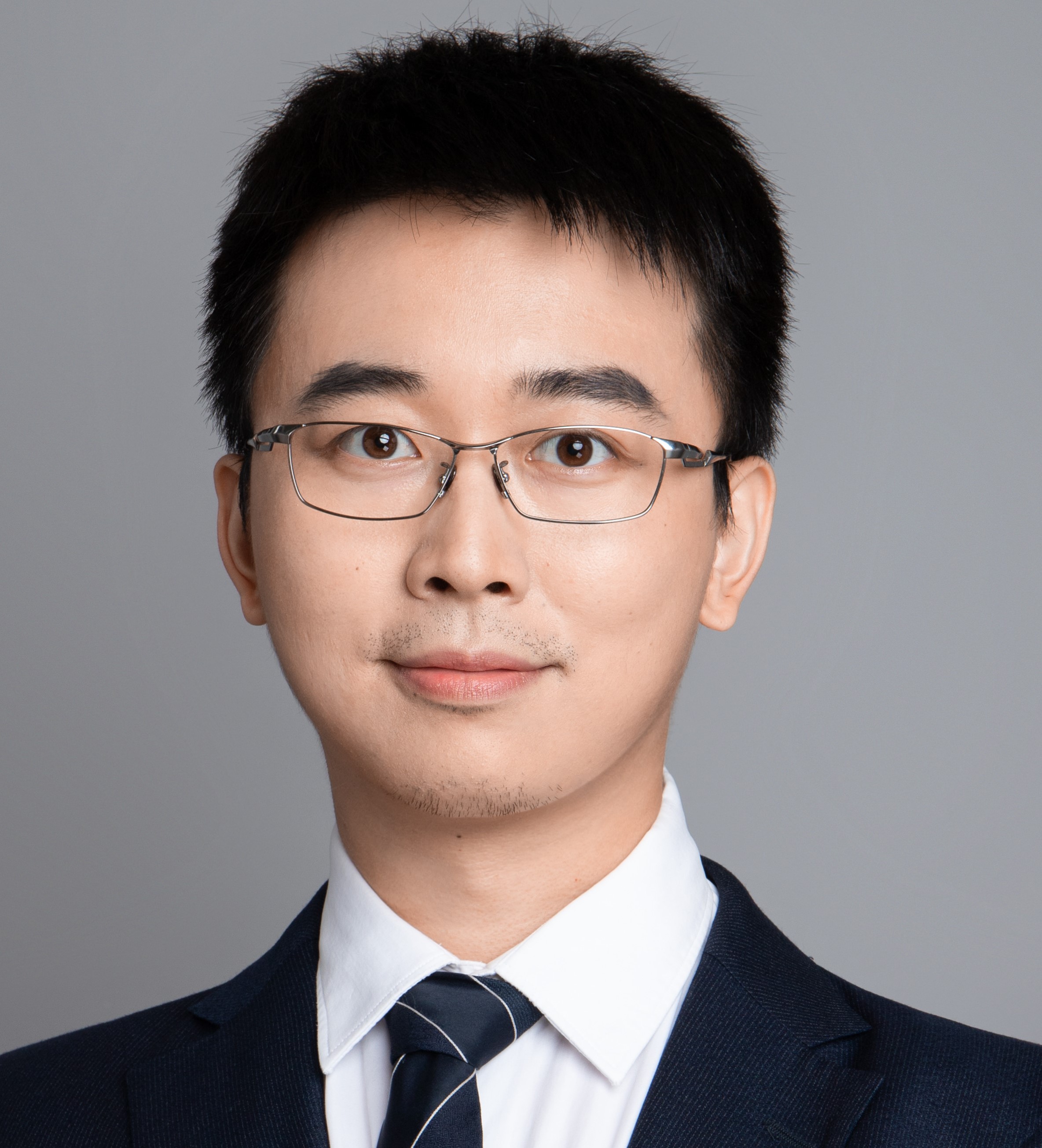 Yifei Zhu
Yifei Zhu
Yifei Zhu is currently an Assistant Professor at the University of Michigan-Shanghai Jiao Tong University Joint Institute in Shanghai Jiao Tong University, China. He received his B.E. degree from Xi’an Jiaotong University, China, in 2012, his M.Phil. degree from The Hong Kong University of Science and Technology, China, in 2015, and his Ph.D. degree in Computer Science from Simon Fraser University, Canada, in 2020. His current research interests include edge computing, multimedia networking, and distributed machine learning systems, where he has published in ACM SIGCOMM, IEEE INFOCOM, ACM Multimedia, and many other venues.
TUT-33: Integrated Space-Aerial-Terrestrial Wireless Networks for Global Connectivity
Thursday, 1 June 2023, 09:00-11:00
Room: F
Abstract:
The significant technological advances in the industry of low earth orbit (LEO) satellites have opened the door to a new realm of LEO-based applications. One key application is providing internet broadband services to people everywhere around the globe, which is considered a significant step towards resolving the digital divide problem. The main driver to achieve such satellite-based global connectivity is deploying large numbers of LEO satellites at a set of altitudes, ranging from 300 km to 1500 km, to ensure that every part of the earth will be covered by at least one satellite at all times. Given that we have multiple competing companies launching various constellations with diverse altitudes and numbers of satellites, we can envision a set of spheres concentric with the earth with large numbers of LEO satellites distributed on the surfaces of each of these spheres. Due to the fundamental difference between these novel communication systems, specially the spatial distribution of the communication nodes, and the typical terrestrial communication networks, we need to think of creative techniques to enable mathematically analysing such communication systems. In this tutorial, we discuss main analytical approaches that enable studying integrated space-aerial-terrestrial wireless networks.
Speakers:
Mustafa A Kishk; Mohamed-Slim Alouini
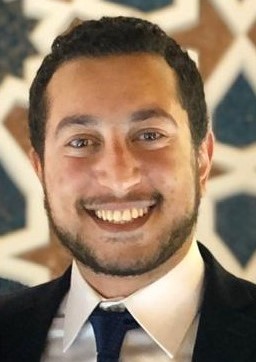 Mustafa A Kishk
Mustafa A Kishk
Mustafa A. Kishk received the B.Sc. and M.Sc. degrees from Cairo University, Giza, Egypt, in 2013 and 2015, respectively, and the Ph.D. degree from Virginia Tech, Blacksburg, VA, USA, in 2018, all in Electrical Engineering. He is an assistant professor at the Electronic Engineering Department, Maynooth University, Ireland. Before that, he was a Postdoctoral Research Fellow with the Communication Theory Laboratory, King Abdullah University of Science and Technology, Saudi Arabia. He currently serves as an associate editor with IEEE Wireless Communication Letters. His current research interests include stochastic geometry,UAV-enabled communication systems, and satellite-enabled communications. He is a recipient of the IEEE ComSoc Outstanding Young Researcher Award for Europe, Middle East, and Africa Region, in 2022. He was recognized as an Exemplary Reviewer by the IEEE Communications Letters in 2020.
Mohamed-Slim Alouini
Mohamed-Slim Alouini [S’94-M’98-SM’03-F’09] was born in Tunis, Tunisia. He received the Ph.D. degree in Electrical Engineering from the California Institute of Technology (Caltech), Pasadena, CA, USA, in 1998. He served as a faculty member in the University of Minnesota, Minneapolis, MN, USA, then in the Texas A&M University at Qatar, Education City, Doha, Qatar before joining KAUST, Thuwal, Makkah Province, Saudi Arabia as a Professor of Electrical Engineering in 2009. His current research interests include the modeling, design, and performance analysis of wireless communication systems.
TUT-34: 6G Wireless Channel Measurements, Characteristics Analysis, and Modeling Methodologies
Thursday, 1 June 2023, 09:00-11:00
Room: V1
Abstract:
For the design, performance evaluation, and optimization of wireless communication systems, channel measurements and realistic channel models with good accuracy-complexity-pervasiveness trade-off are indispensable. The proposed tutorial is aiming to address recent advances and future challenges on channel measurements and models for sixth generation (6G) wireless systems. Network architecture and key technologies for 6G that will enable global coverage, all spectra, and full applications will be first discussed. Channel measurements and non-predictive channel models are then reviewed for challenging 6G scenarios and frequency bands, focusing on millimeter wave, terahertz, and optical wireless communication channels under all spectra, satellite, unmanned aerial vehicle, and maritime communication channels under global coverage scenarios, and vehicle-to-vehicle, ultra-massive multiple-input multiple-output (MIMO), industrial Internet of things (IoT), reconfigurable intelligent surface (RIS), and integrated sensing and communication (ISAC) channels under full application scenarios. New machine learning based predictive channel models will also be investigated. A non-predictive 6G pervasive channel model for all frequency bands and all scenarios will then be proposed, which is expected to serve as a baseline for future standardized 6G channel models. Future research challenges and trends for 6G channel measurements and models will be discussed in the end of the tutorial.
Speakers: Cheng-Xiang Wang, Jie Huang, Haiming Wang, Harald Haas
Prof. Cheng-Xiang Wang
Prof. Cheng-Xiang Wang received the B.Sc. and M.Eng. degrees in Communication and Information Systems from Shandong University, China, in 1997 and 2000, respectively, and the Ph.D. degree in Wireless Communications from Aalborg University, Denmark, in 2004. He has been with Heriot- Watt University, U.K., since 2005, where he was promoted to a Professor in 2011. In 2018, he joined Southeast University, China, as a Professor. He is also a part-time Professor with the Purple Mountain 2 Laboratories, China. He has authored four books, three book chapters, and more than 480 papers, including 27 Highly Cited Papers. He has delivered 24 Invited Keynote Speeches/Talks and 14 Tutorials in international conferences. His current research interests include wireless channel measurements and modeling, 6G wireless communication networks, and electromagnetic information theory. He is a Member of the Academia Europaea, a Member of the European Academy of Sciences and Arts (EASA), a Fellow of the Royal Society of Edinburgh (FRSE), IEEE, IET, and a Highly-Cited Researcher recognized by Clarivate Analytics in 2017-2020. He is currently an Executive Editorial Committee member for the IEEE TWC. He has served as an Editor for nine international journals and a Guest Editor for several IEEE journals and received 15 Best Paper Awards.
Dr. Jie Huang
Dr. Jie Huang received the B.E. degree in Information Engineering from Xidian University, China, in 2013, and the Ph.D. degree in Information and Communication Engineering from Shandong University, China, in 2018. From Oct. 2018 to Oct. 2020, he was a Postdoctoral Research Associate in the National Mobile Communications Research Laboratory, Southeast University, China, supported by the National Postdoctoral Program for Innovative Talents. From Jan. 2019 to Feb. 2020, he was a Postdoctoral Research Associate in Durham University, U.K. Since Mar. 2019, he is a parttime researcher in Purple Mountain Laboratories, China. Since Nov. 2020, he is an Associate Professor in the National Mobile Communications Research Laboratory, School of Information Science and Engineering, Southeast University, China. He has authored and co-authored more than 60 papers in refereed journals and conference proceedings. He received 3 Best Paper Awards from WPMC 2016, WCSP 2020, and WCSP 2021. He has also delivered 7 tutorials in IEEE/CIC ICCC 2021, IEEE PIMRC 2021, IEEE ICC 2022, IEEE VTC 2022 Spring, IEEE PIMRC 2022, IEEE VTC 2022 Fall, and IEEE Globecom 2022. His research interests include millimeter wave, massive MIMO, reconfigurable intelligent surface channel measurements and modeling, wireless big data, and 6G wireless communications.
Prof. Haiming Wang
Prof. Haiming Wang received the B.Eng., M.S., and Ph.D. degrees in Electrical Engineering from Southeast University, China, in 1999, 2002, and 2009, respectively. Since 2002, he has been with the State Key Laboratory of Millimeter Waves, School of Information Science and Engineering, Southeast University, China, and he is currently a professor. He is also a part-time professor with the Purple Mountain Laboratories, China. In 2008, he was a Visiting Scholar with the Blekinge Institute of Technology (BTH), Sweden. He has authored and co-authored over 50 journal papers in peerreviewed academic journals. Prof. Wang has authored and co-authored over more than 80 patents and 55 patents have been granted. He received the first-class Science and Technology Progress Award of Jiangsu Province of China in 2009 and was awarded for contributing to the development of IEEE 802.11aj by the IEEE-SA in 2018. His current research interests include AI-powered antenna and radiofrequency technologies (iART), AI-powered channel measurement and modeling technologies (iCHAMM), and integrated communications and sensing technologies (iCAS). He is currently serving as the vice chair of IEEE 802.11aj Task Group. He served as the TPC member or the session chair of many international conferences such as IEEE ICCT 2011, IEEE IWS 2013, and IEEE VTC 2016.
Prof. Harald Haas
Prof. Harald Haas received the Ph.D. degree in wireless communications from the University of Edinburgh, U.K., in 2001. He is the Director of the LiFi Research and Development Centre at the University of Strathclyde. He is also the Initiator, co-founder and Chief Scientific Officer of pureLiFi Ltd. He has authored 550 conference and journal papers, including papers in Science and Nature Communications. His main research interests are in optical wireless communications, hybrid optical wireless and RF communications, spatial modulation, and interference coordination in wireless networks. His team invented spatial modulation. He introduced LiFi to the public at an invited TED Global talk in 2011. He gave a second TED Global lecture in 2015 on the use of solar cells as LiFi data detectors and energy harvesters. In 2016, he received the Outstanding Achievement Award from 3 the International Solid State Lighting Alliance. In 2019 he was recipient of IEEE Vehicular Society James Evans Avant Garde Award. Haas was elected a Fellow of the Royal Society of Edinburgh (RSE) in 2017 and a Fellow of the Royal Academy of Engineering (FREng) in 2019. In the same year he received a Royal Society Wolfson Research Merit Award and was elevated to IEEE Fellow.







